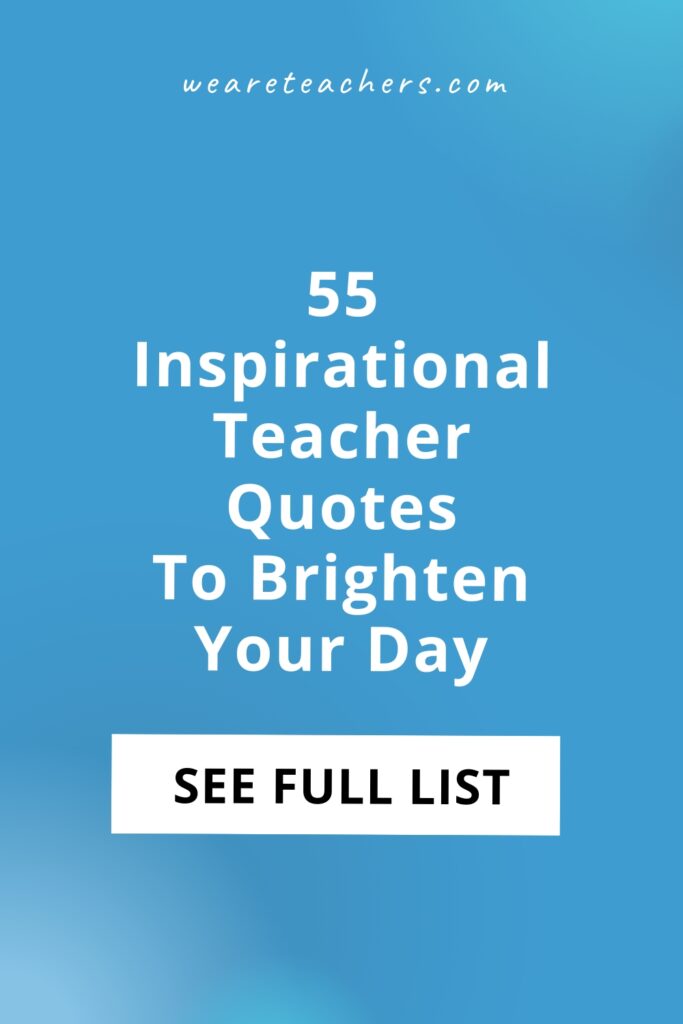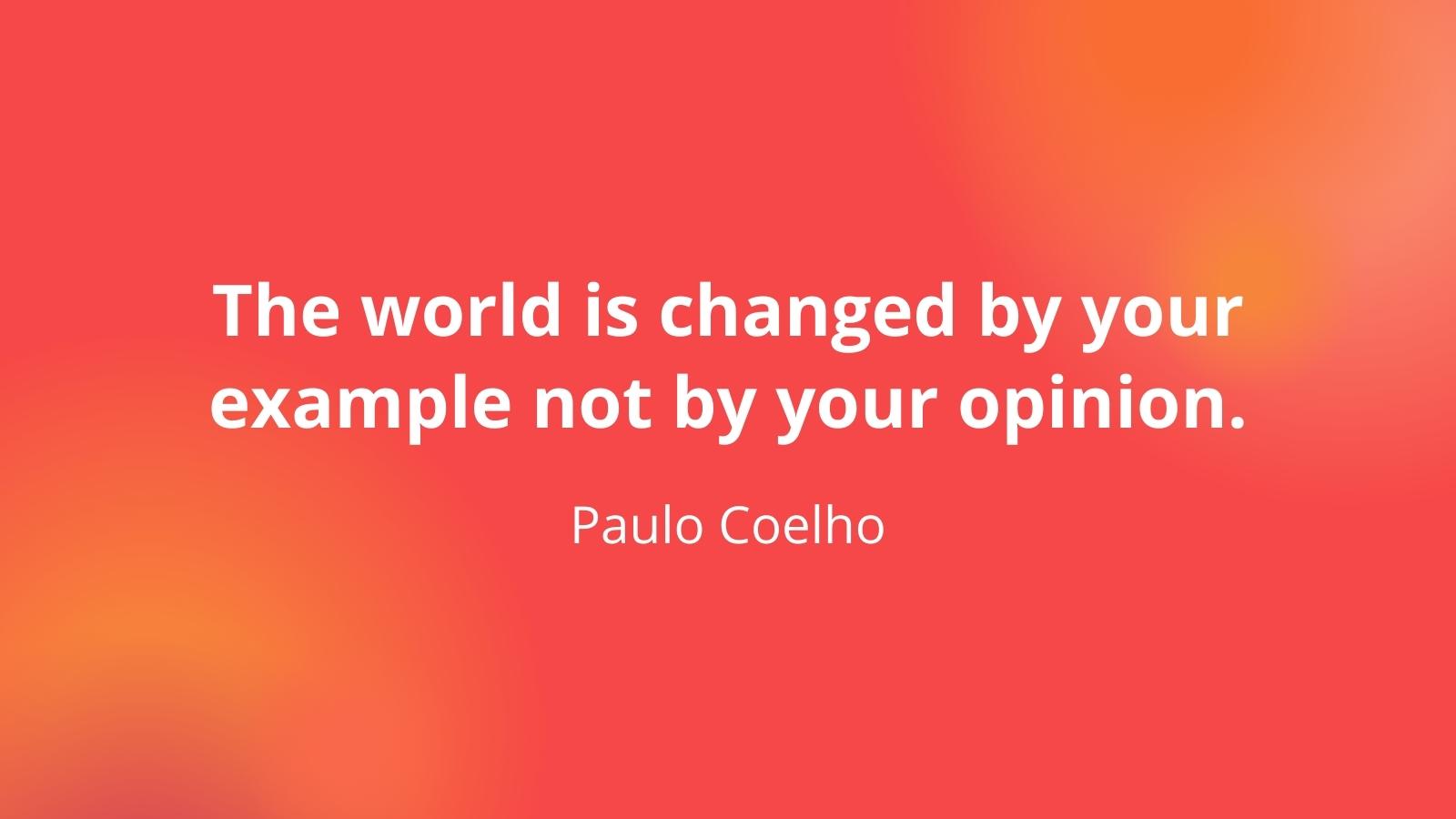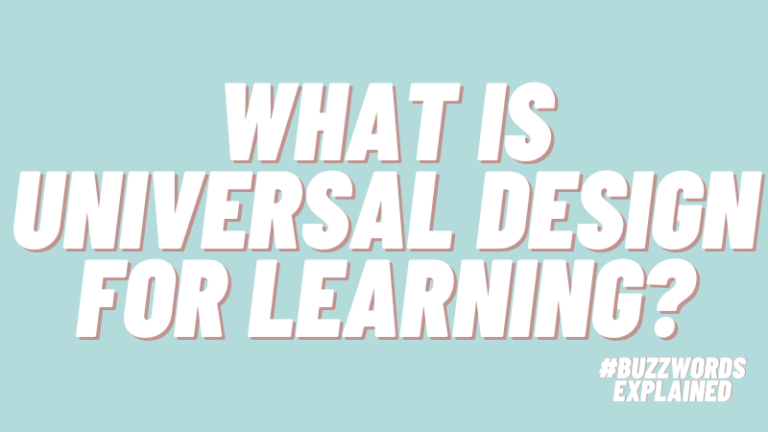Teaching is a tough job. In fact, it’s tougher today than it’s ever been. A pandemic shook us to the core, violence threatens our classrooms, and the rules keep changing. Yet, this country’s amazing educators continue to show up and do their best. We’ve put together this list of teacher quotes to show our support and appreciation for the incredible people who are there to support our kids every single day.
Ways To Use Teacher Quotes
There are many great ways to use these teacher quotes. The goal is to bring a little positivity and inspiration to each day. Here are some ideas:
- Choose a new quote to read before starting each day.
- Pick a favorite quote and print it to hang in your classroom.
- Share quotes with your teacher friends as a pick-me-up.
- Add quotes to holiday or teacher appreciation cards.
- Read quotes aloud or project them on a screen to kick off staff meetings.
Our Favorite Teacher Quotes
1. I wasn’t born to “just teach.” – Author Unknown
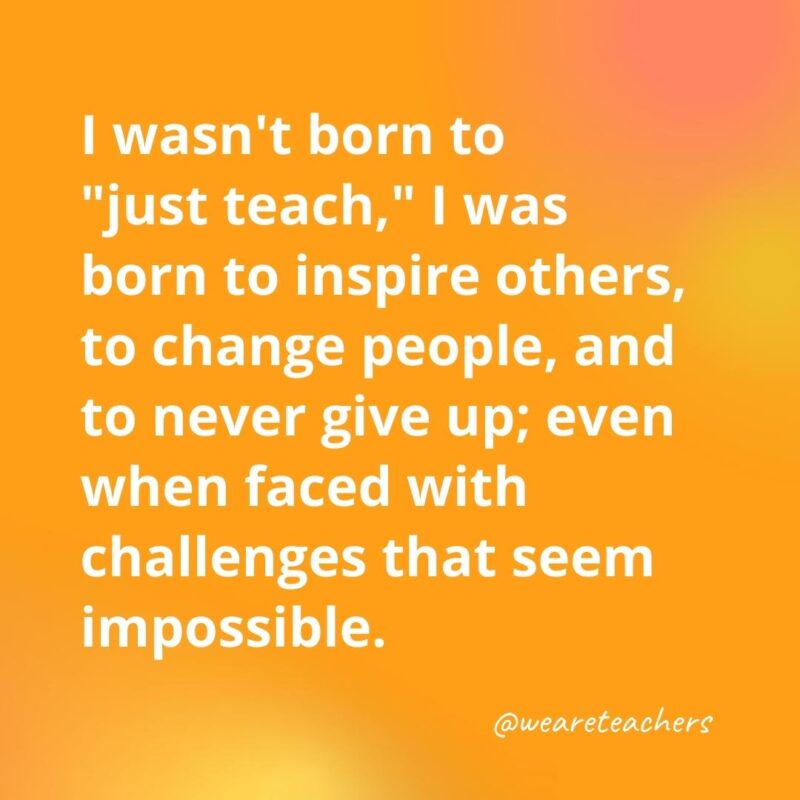
2. One child, one teacher, one book … – Malala
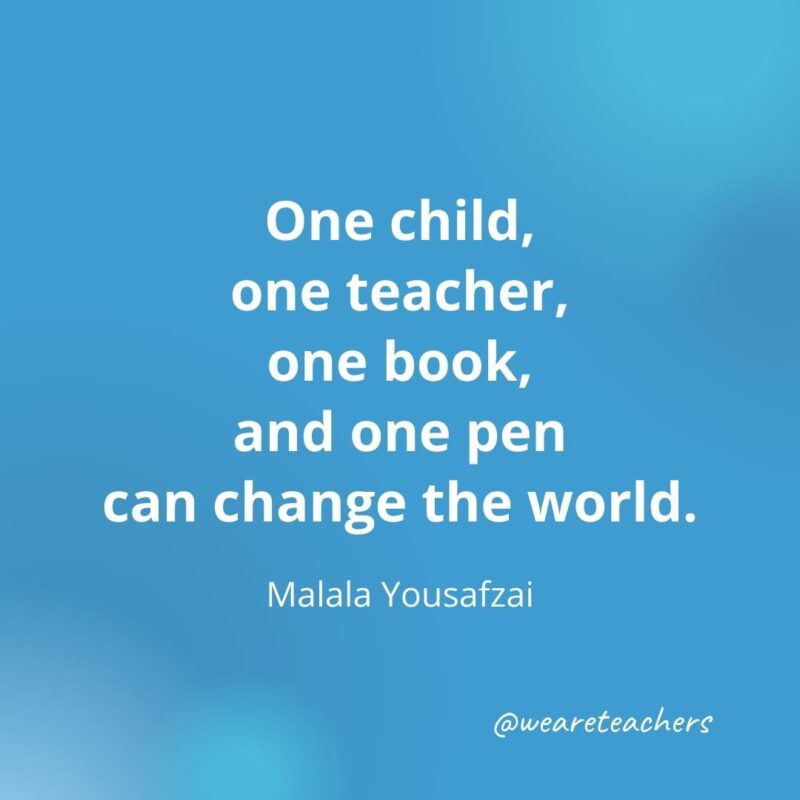
3. The teacher who is indeed wise … – Kahlil Gibran
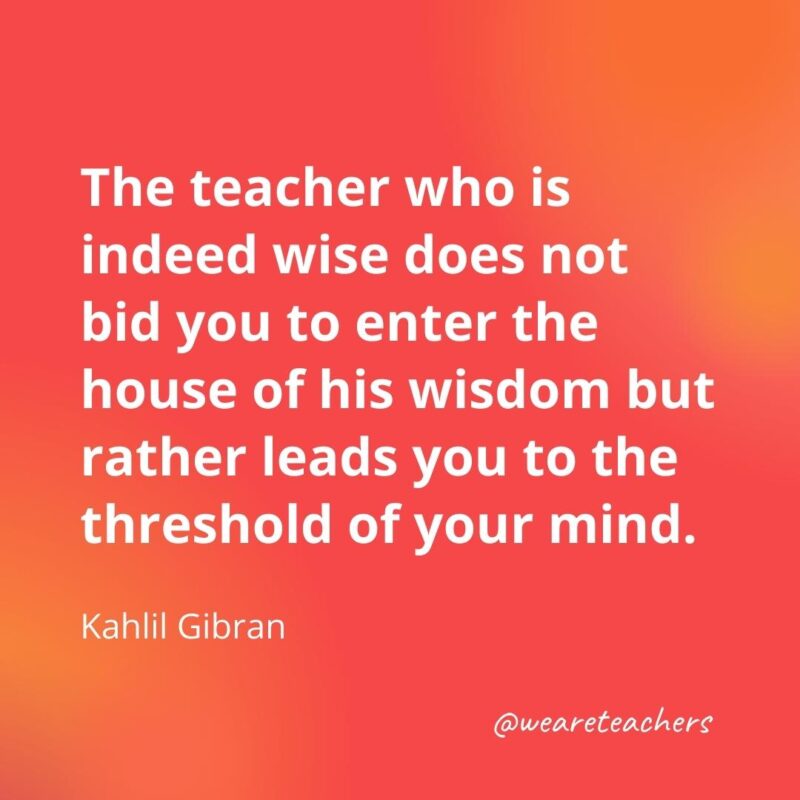
4. When you love your class, your students just know.
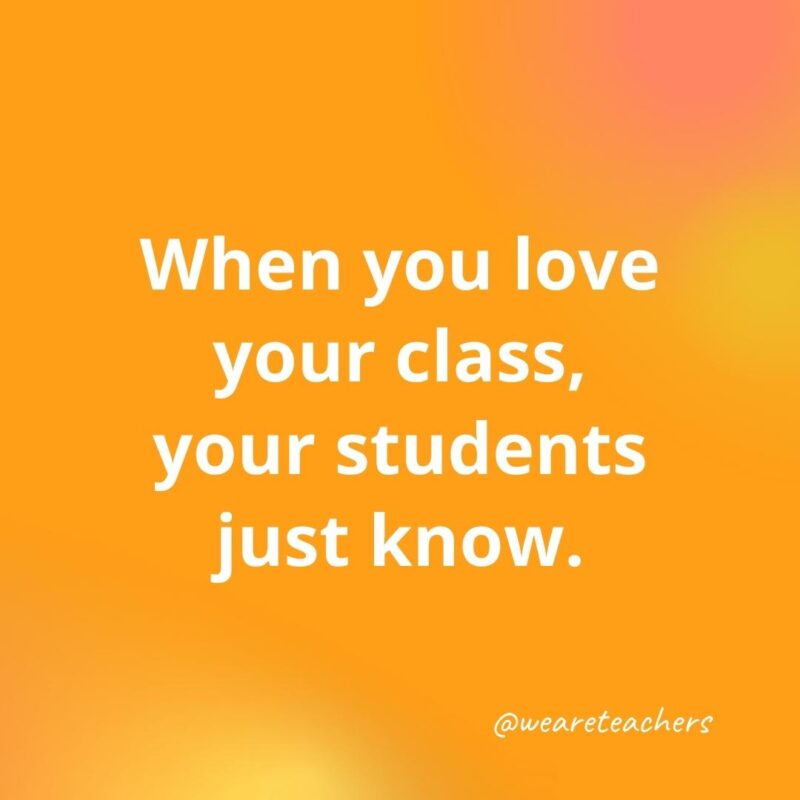
5. All the small moments with your students …
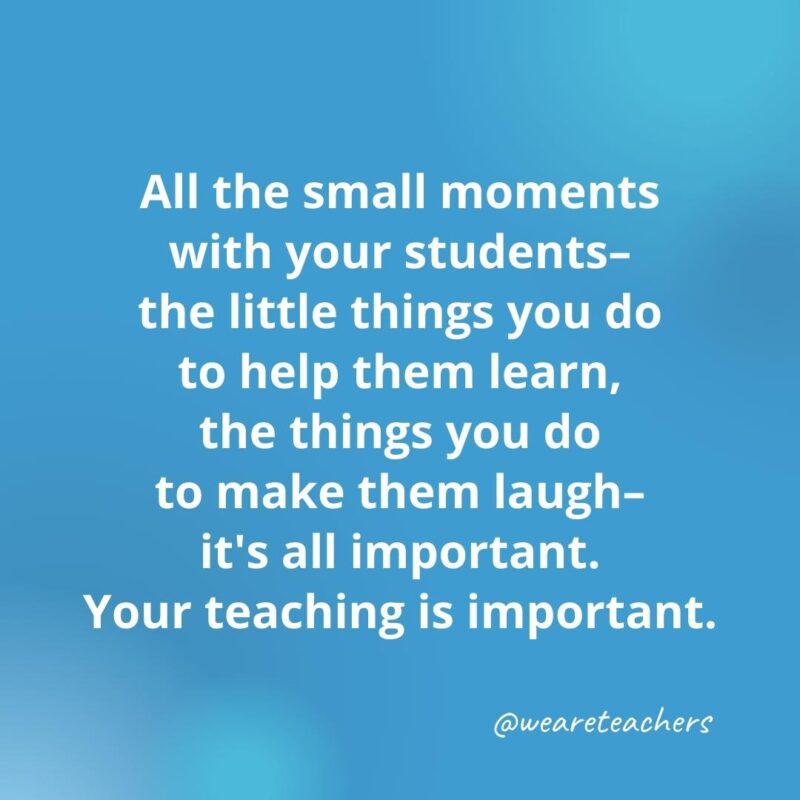
6. Children learn best when they like their teacher and they think their teacher likes them. – Gordon Neufeld
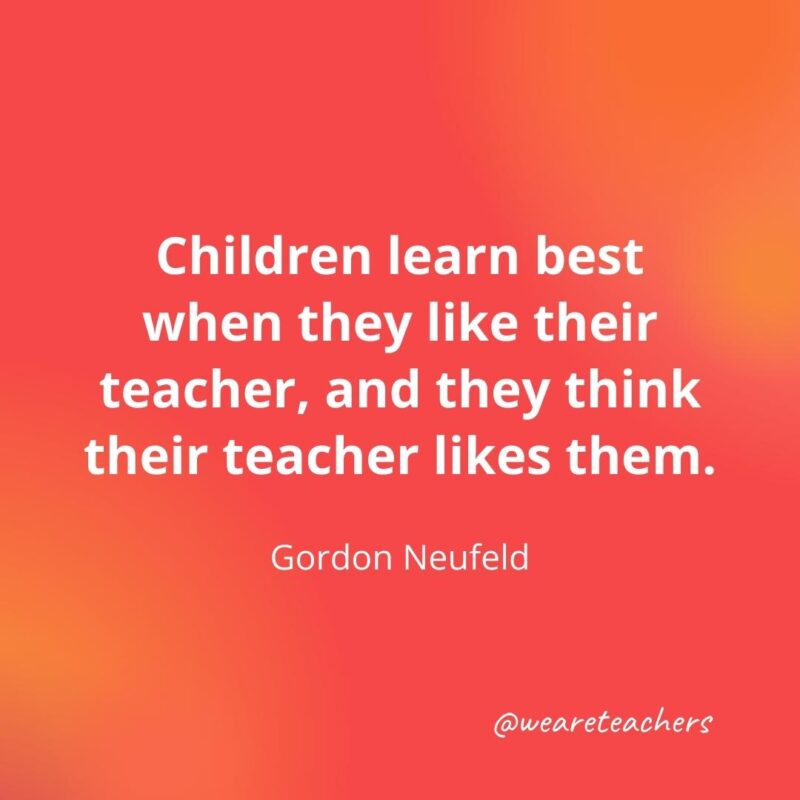
7. A great teacher is a great artist … – John Steinbeck
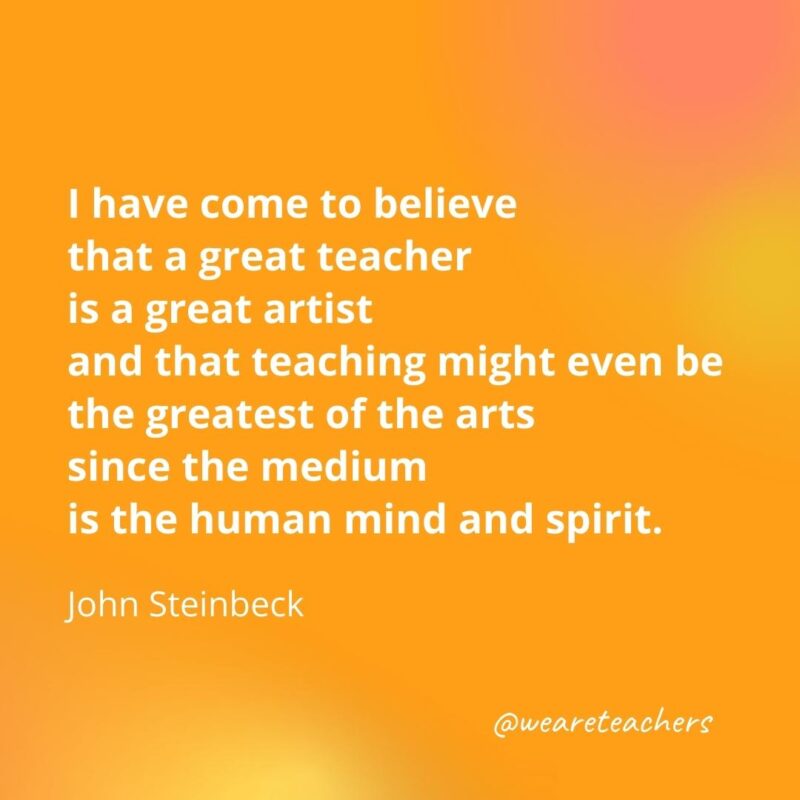
8. Watch a teacher with a classroom full of students … – Teresa Kwant
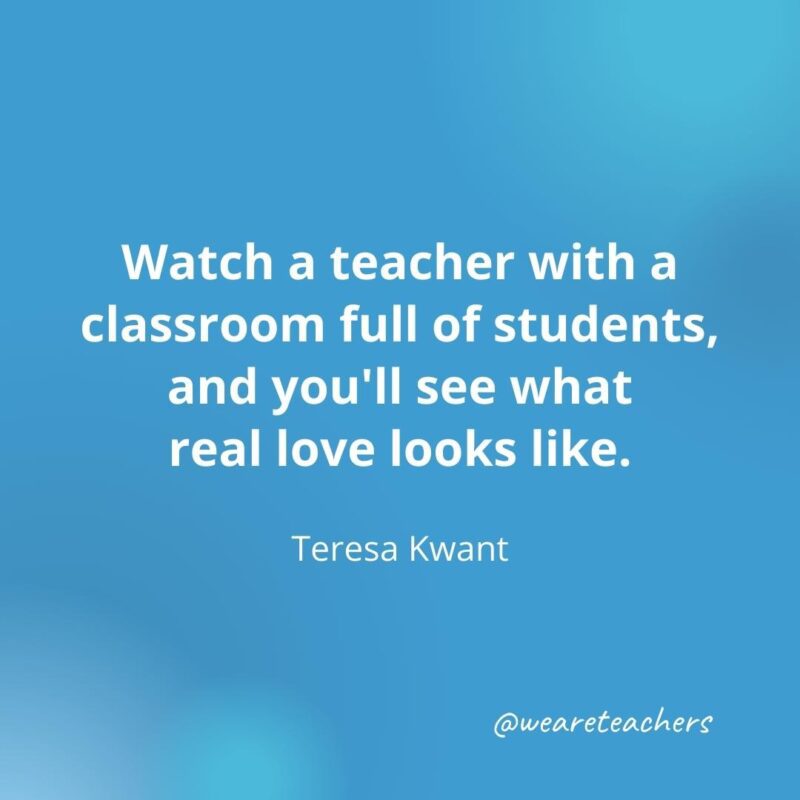
9. Teaching kids to count is fine, but teaching them what counts is best. – Bob Talbert
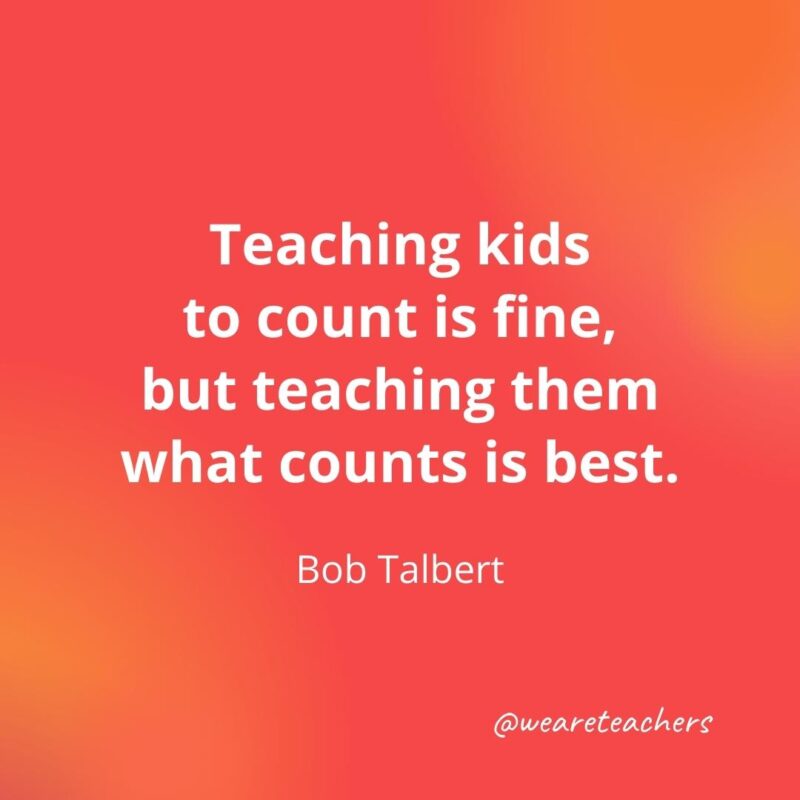
10. A well-educated mind will always have more questions than answers. – Helen Keller

11. A teacher affects eternity. – Henry Brooks Adams
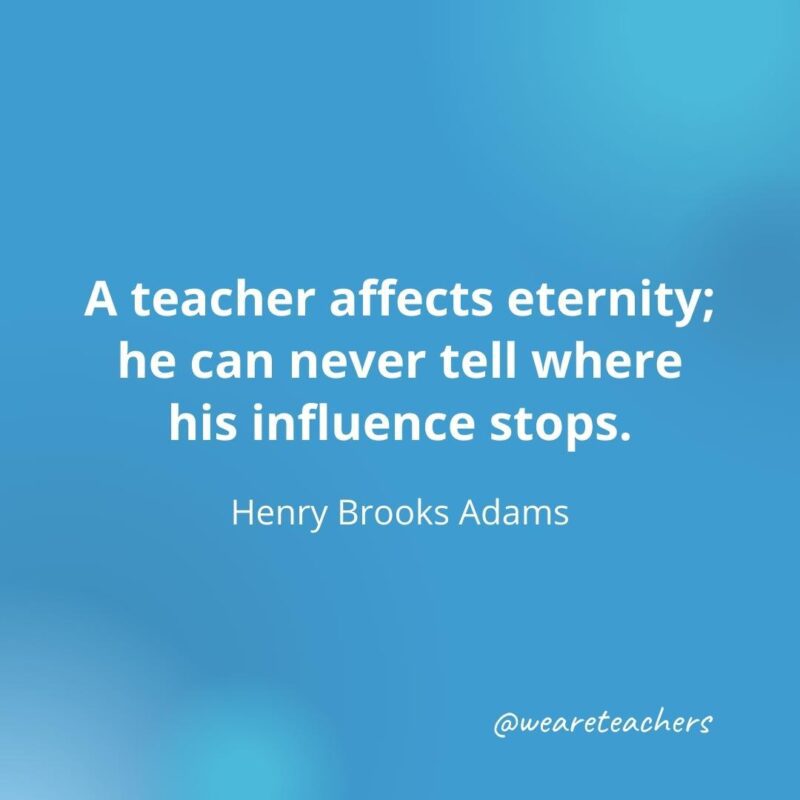
12. Lessons on kindness are just as important.
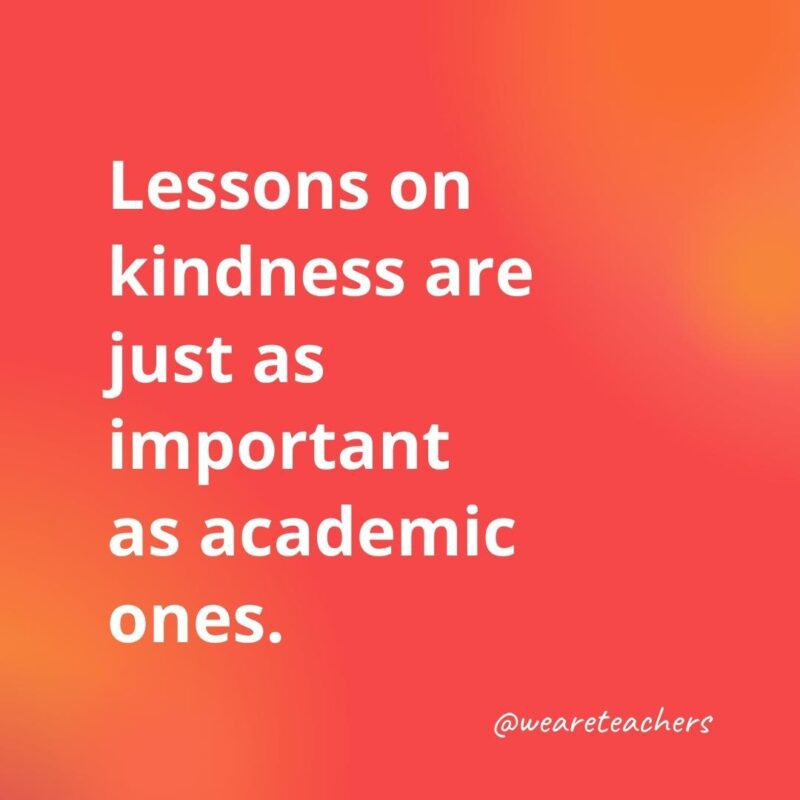
13. If you don’t like something, change it. – Maya Angelou
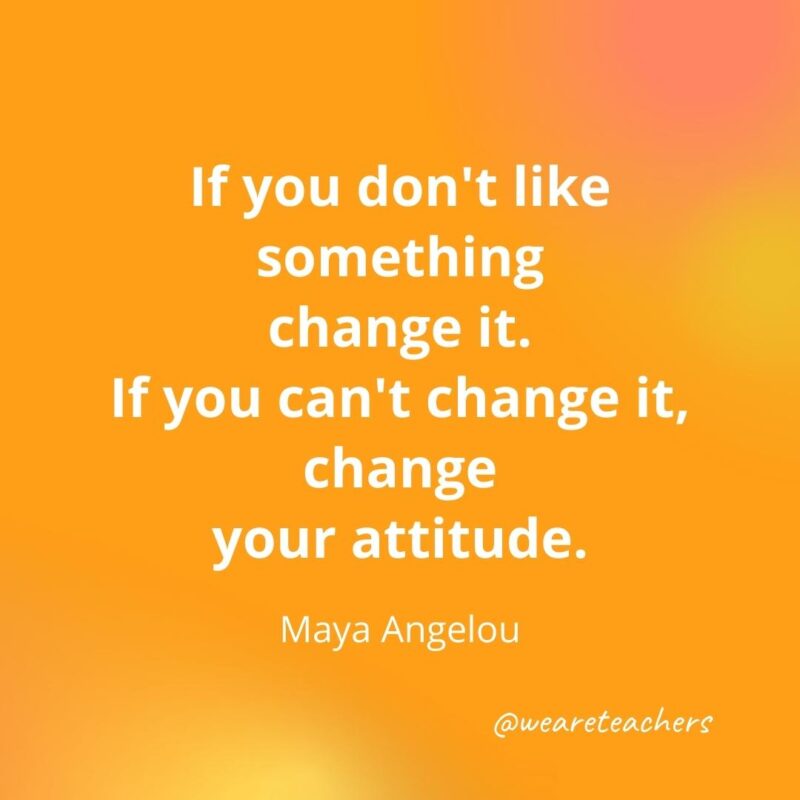
14. If you love them today, maybe you can teach them tomorrow. – Jeffrey R. Holland
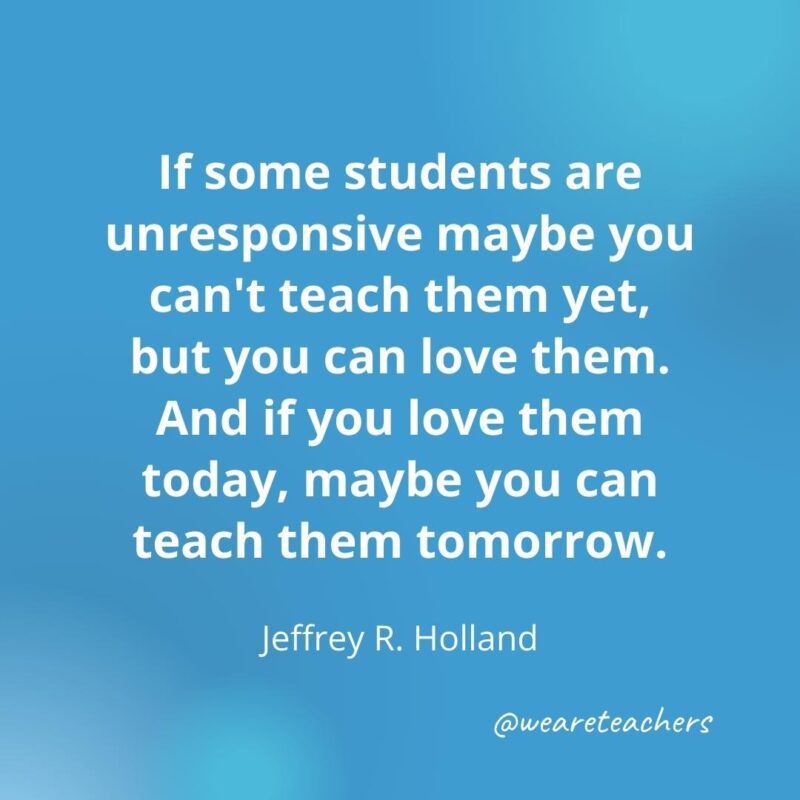
15. Every job has its ups and downs, but not every job can change a life.
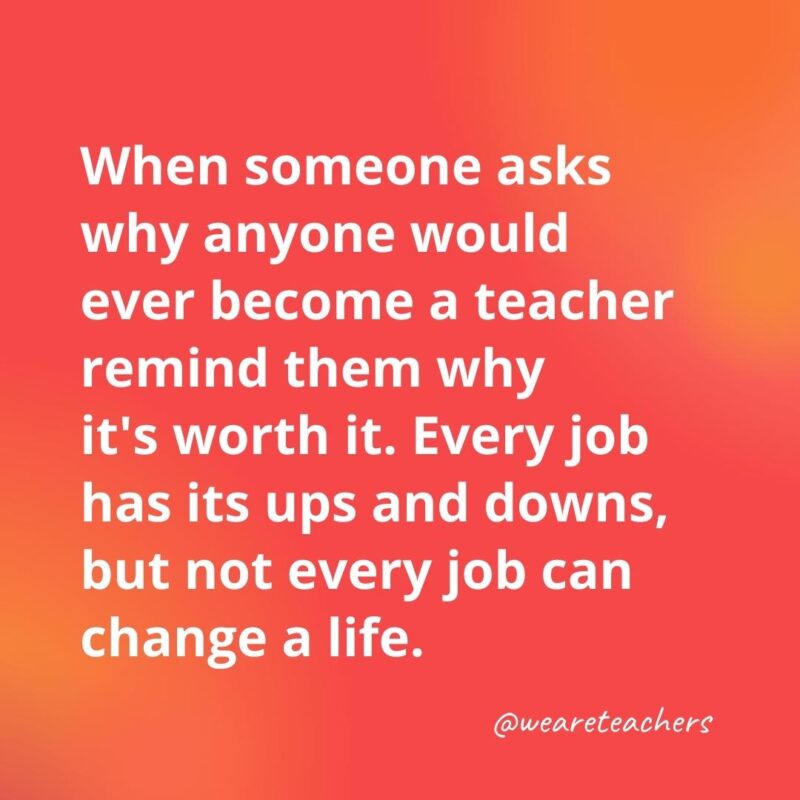
16. The best thing about being a teacher is that it matters. – Todd Whitaker
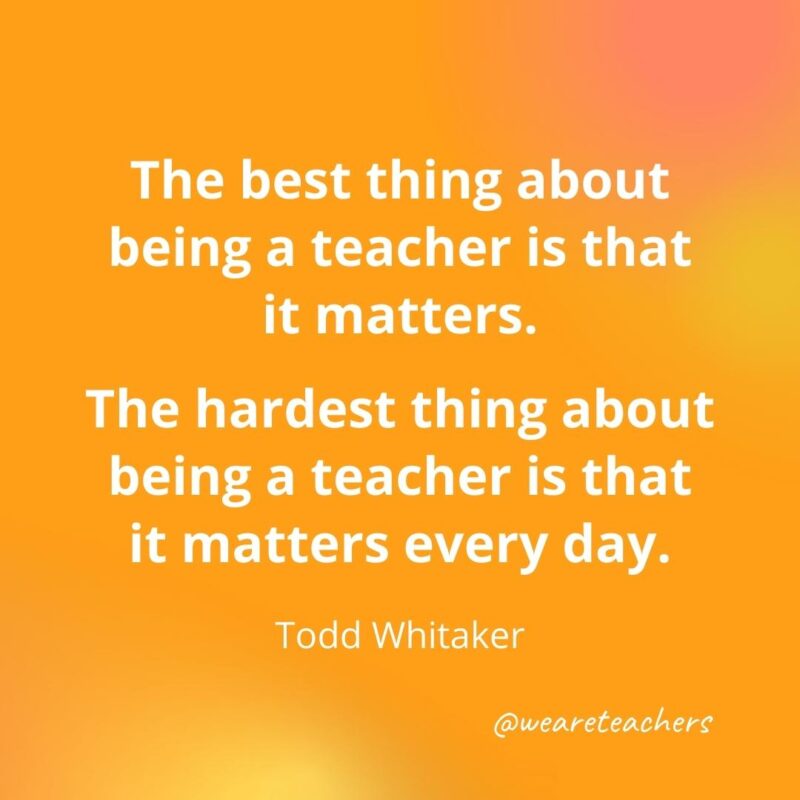
17. Only the brave choose to teach.
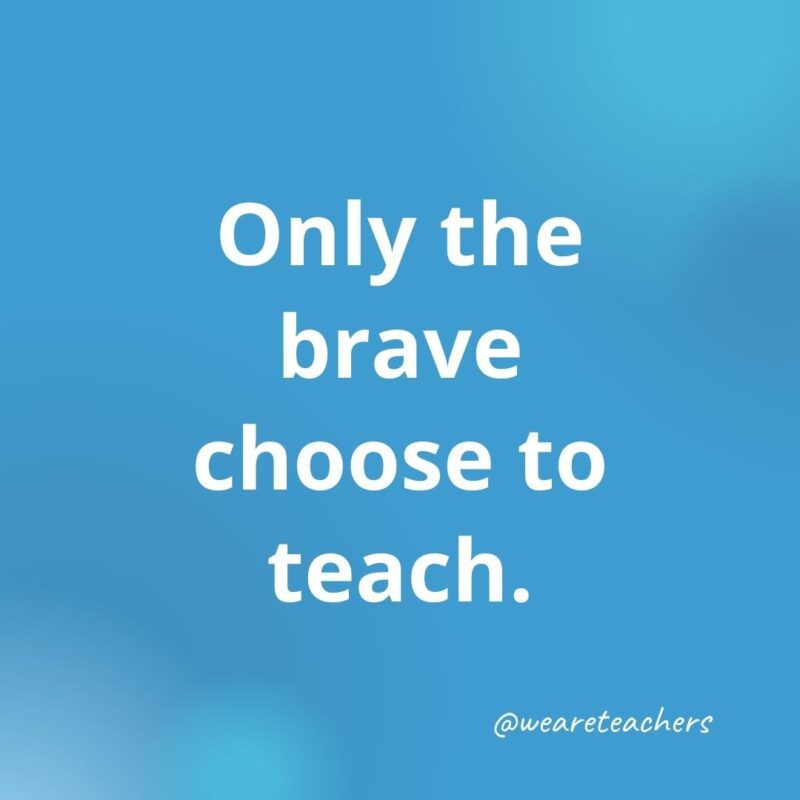
18. Our fingerprints don’t fade from the lives we touch. – Judy Blume
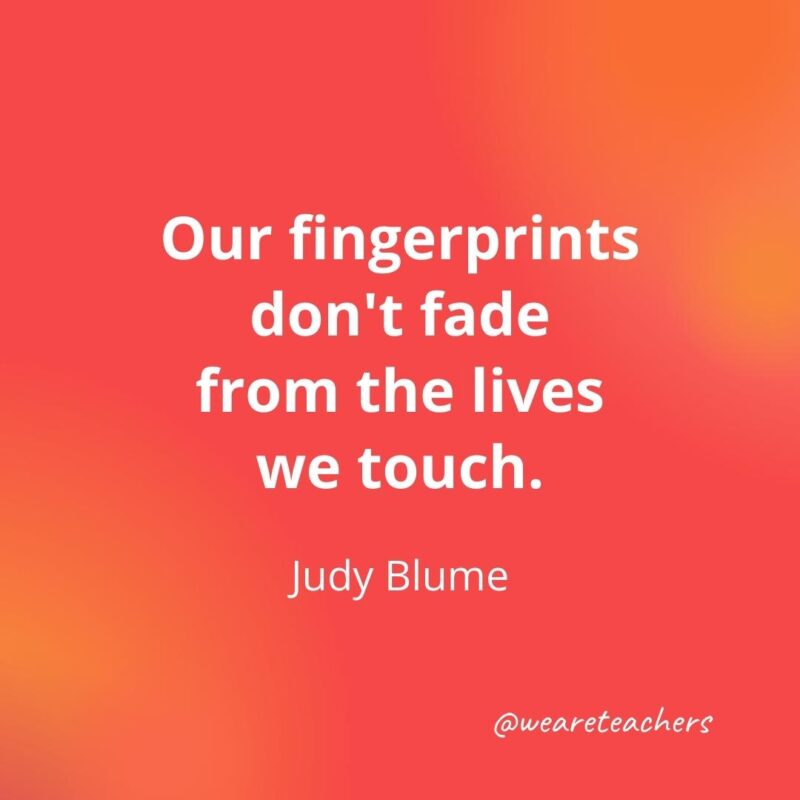
19. The best teacher lodges an intent not in the mind but in the heart. – Anne Michaels
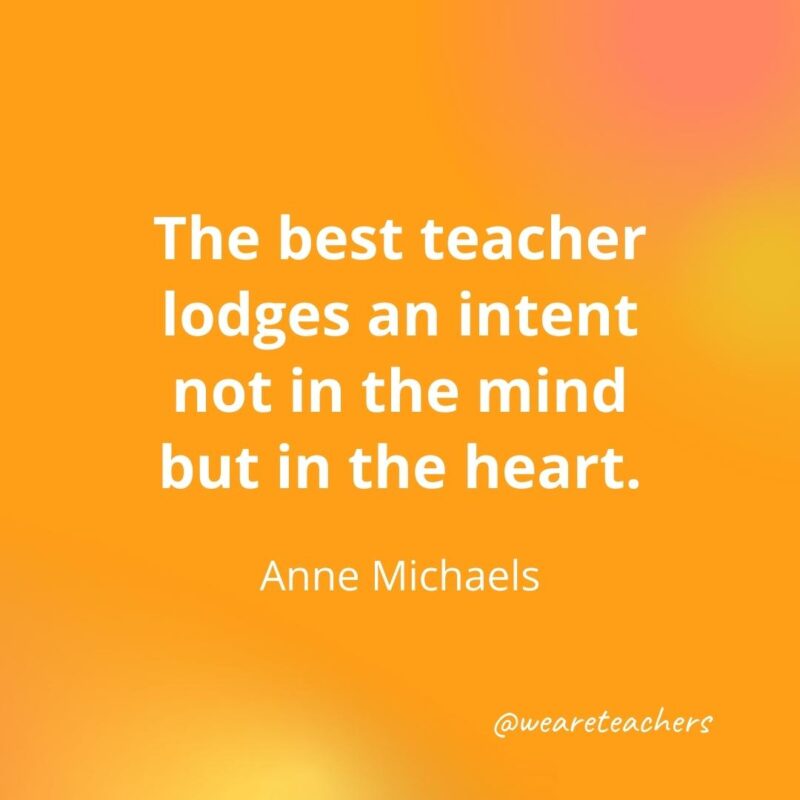
20. Sometimes the greatest PD is the teacher down the hall. – Brian Aspinall
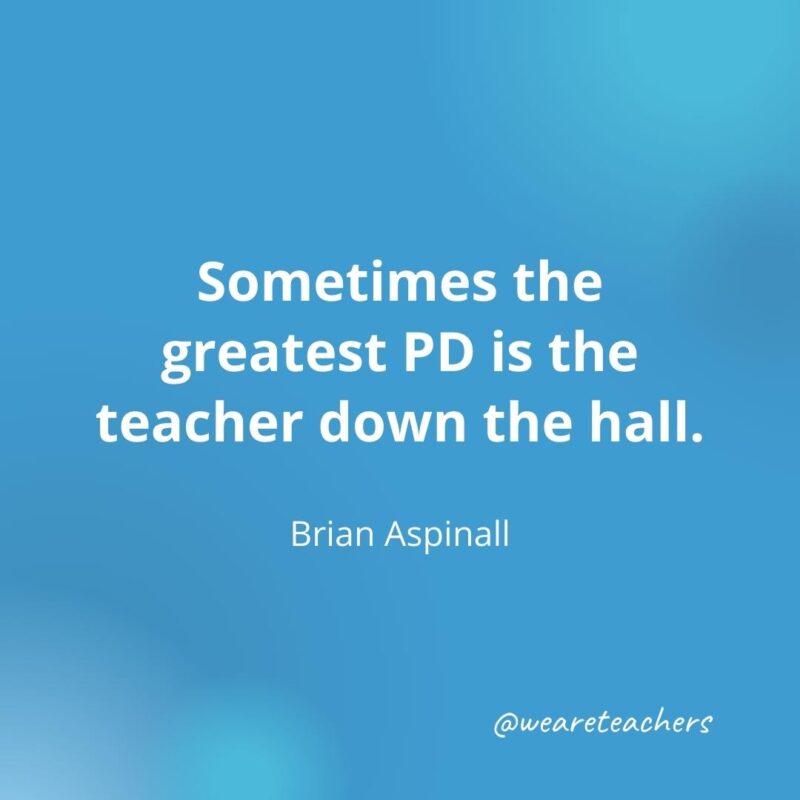
21. The trick to having happy students is to first be happy yourself.
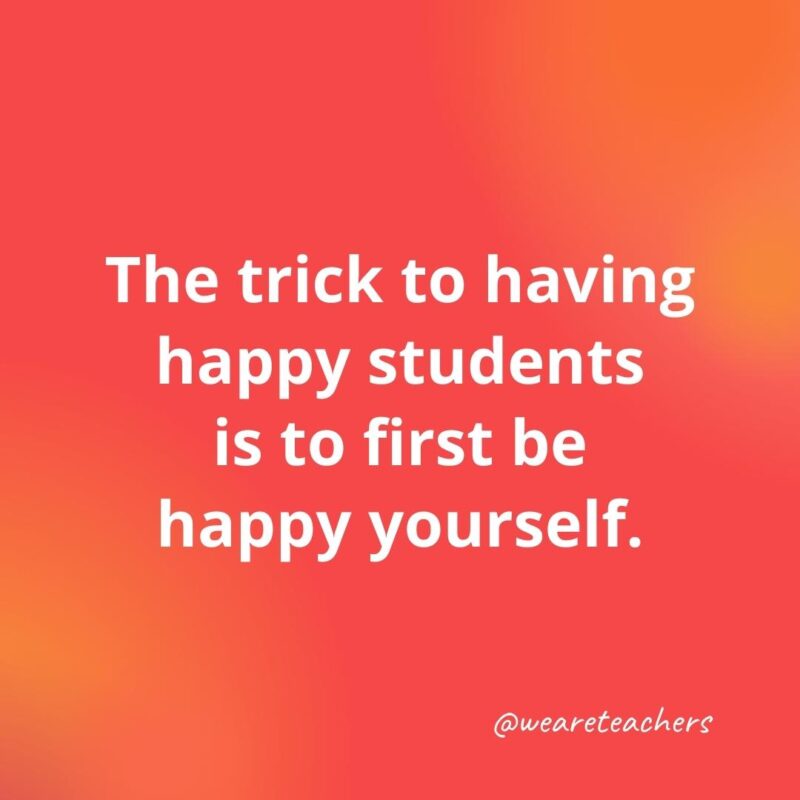
22. The great teacher inspires. – William Arthur Ward
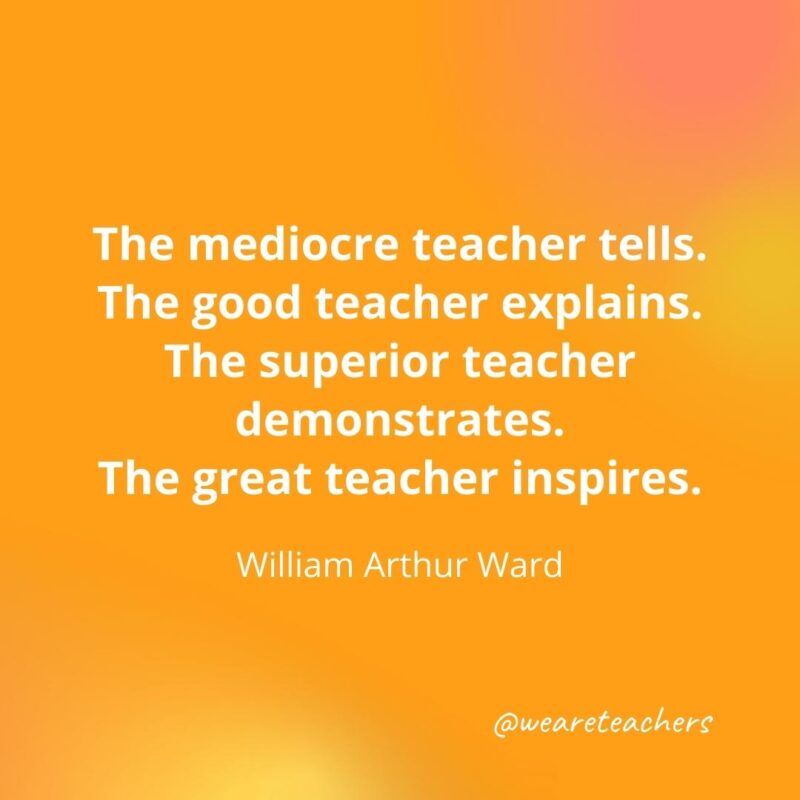
23. Educating the mind without educating the heart is no education at all. – Aristotle
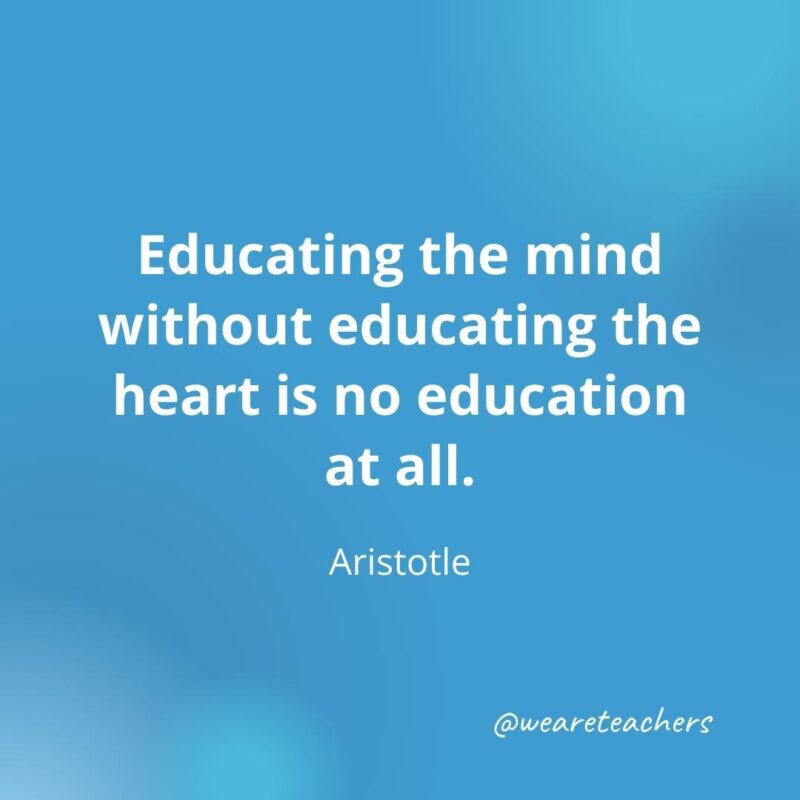
24. You are a great teacher.
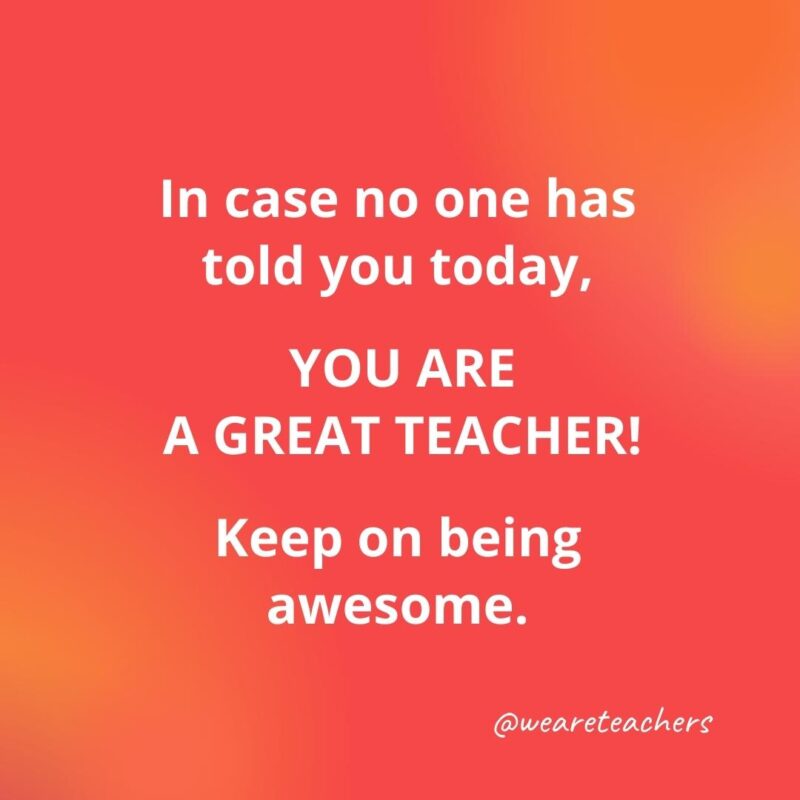
25. Keep company mainly with teachers who uplift you. – Robert John Meehan
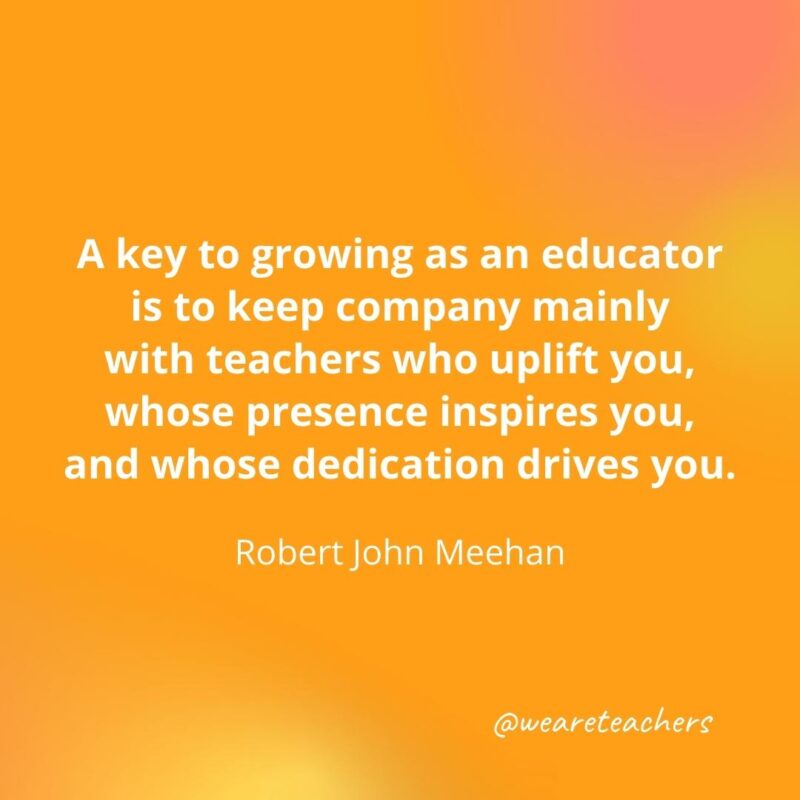
26. Like a boss teacher.
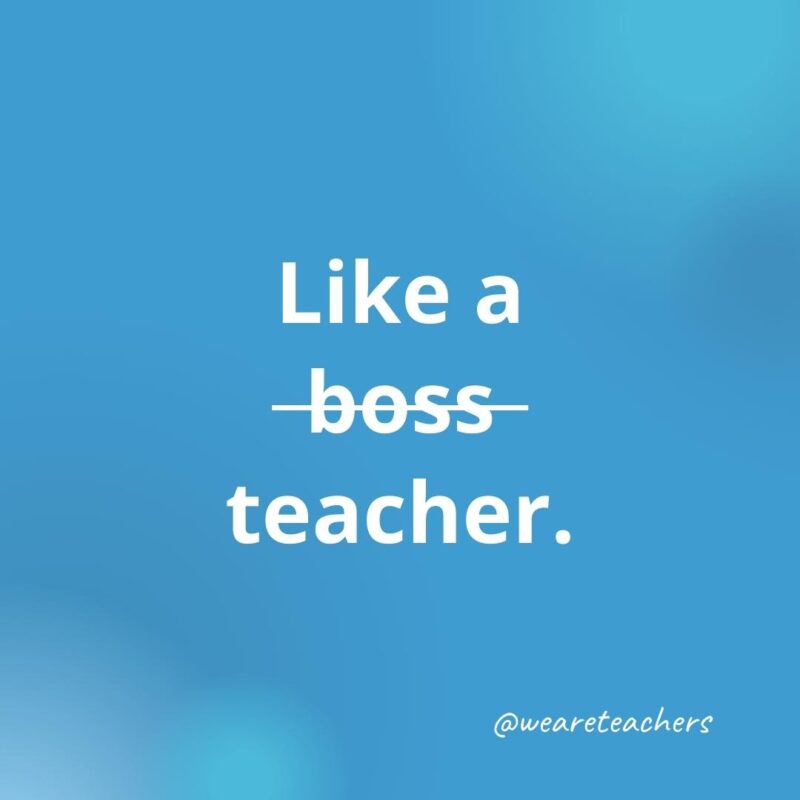
27. Teaching is the profession that teaches all the other professions. – Author Unknown
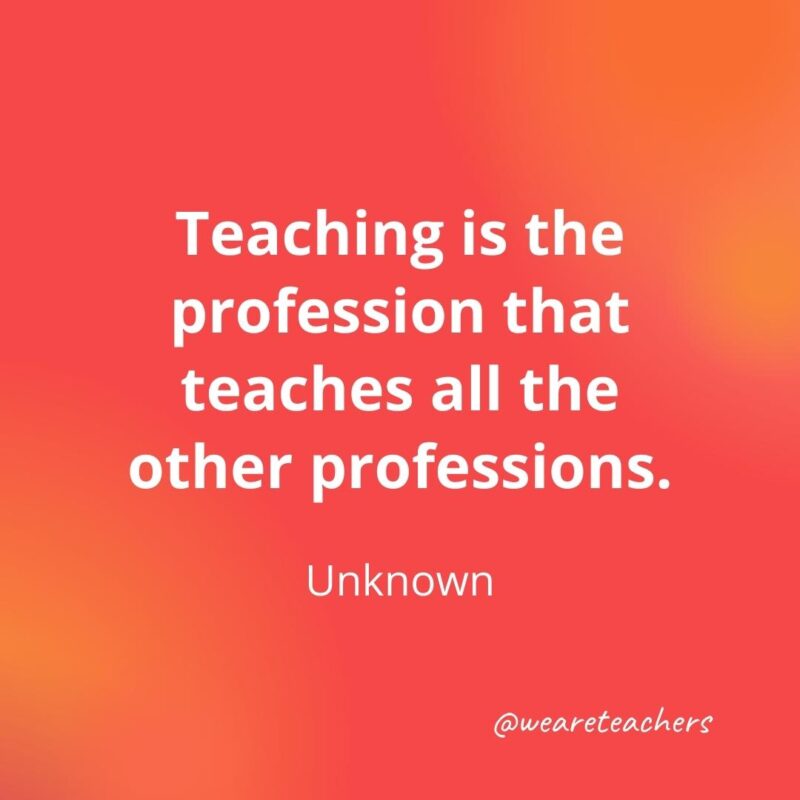
28. May your coffee be strong and your students calm.
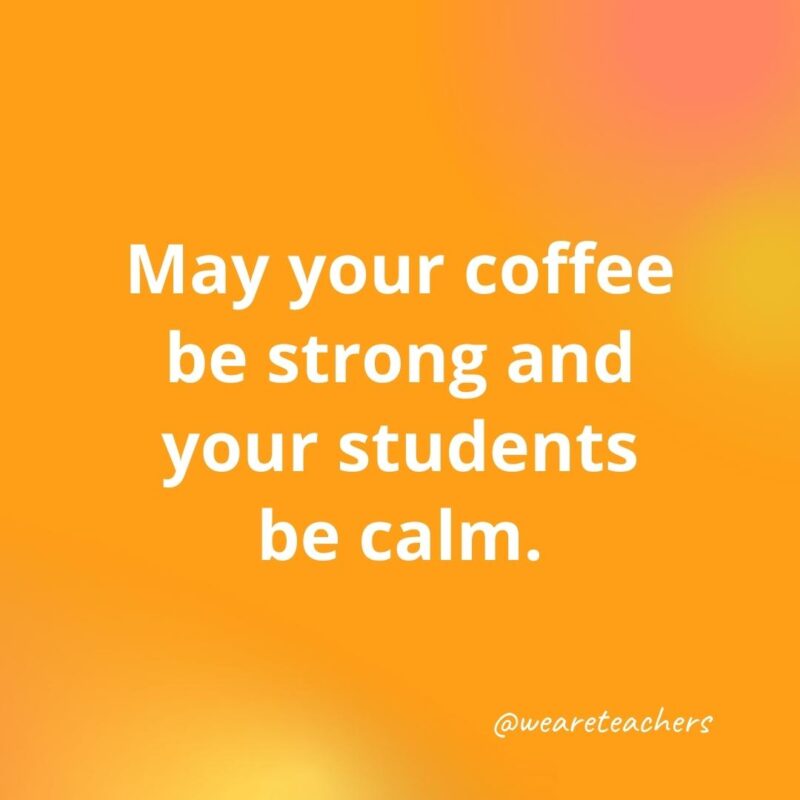
29. Be somebody who makes everybody feel like a somebody.
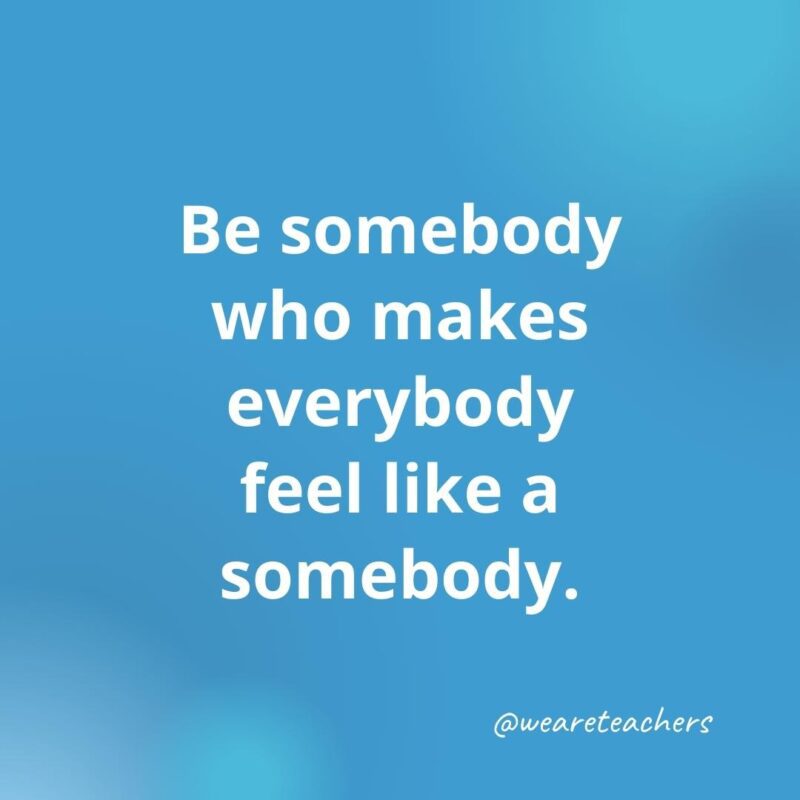
30. Nothing can dim a light that shines from within. – Maya Angelou
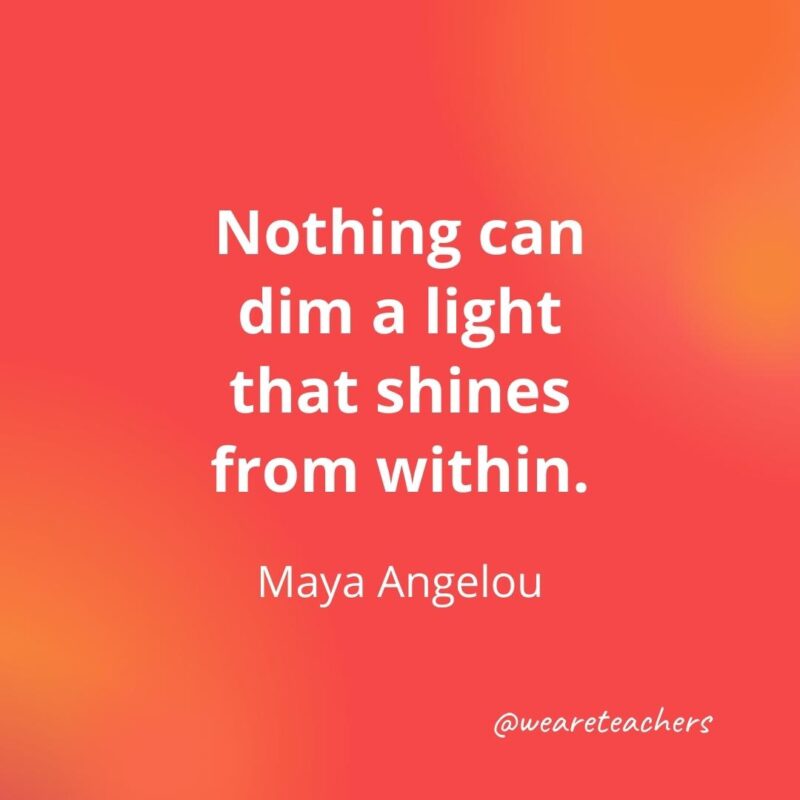
31. Be the leader in a school of fish.
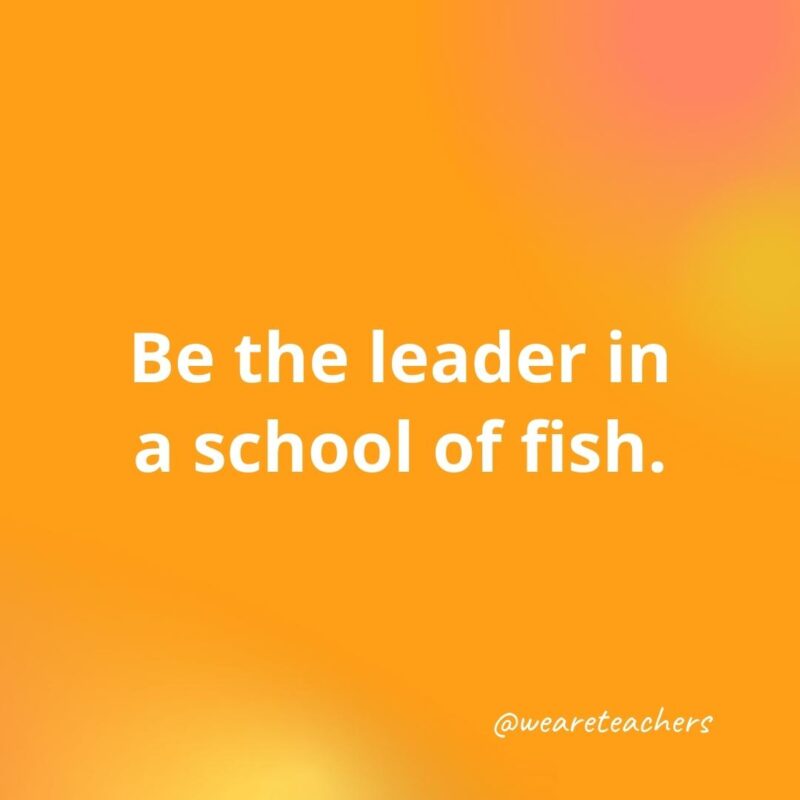
32. Every child needs at least one adult … – Urie Bronfenbrenner
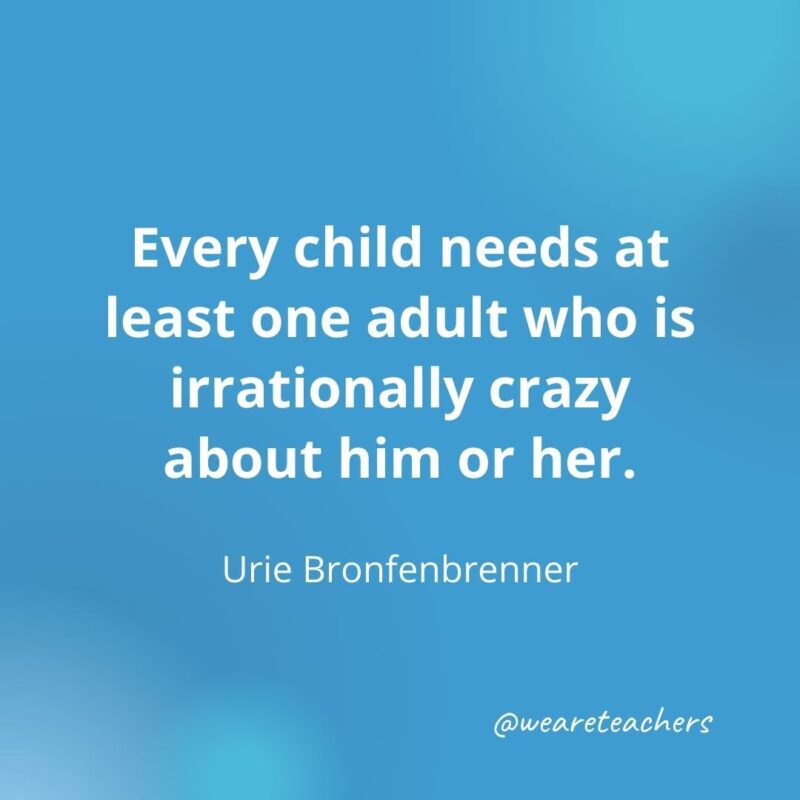
33. Be awesome, be amazing, be you.
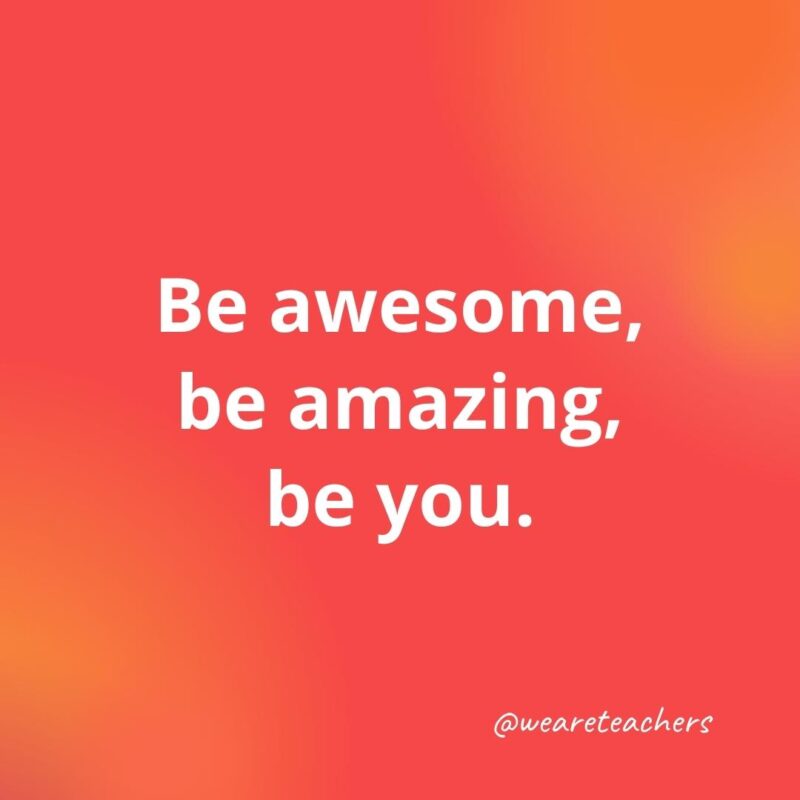
34. In a world where you can be anything, be kind.
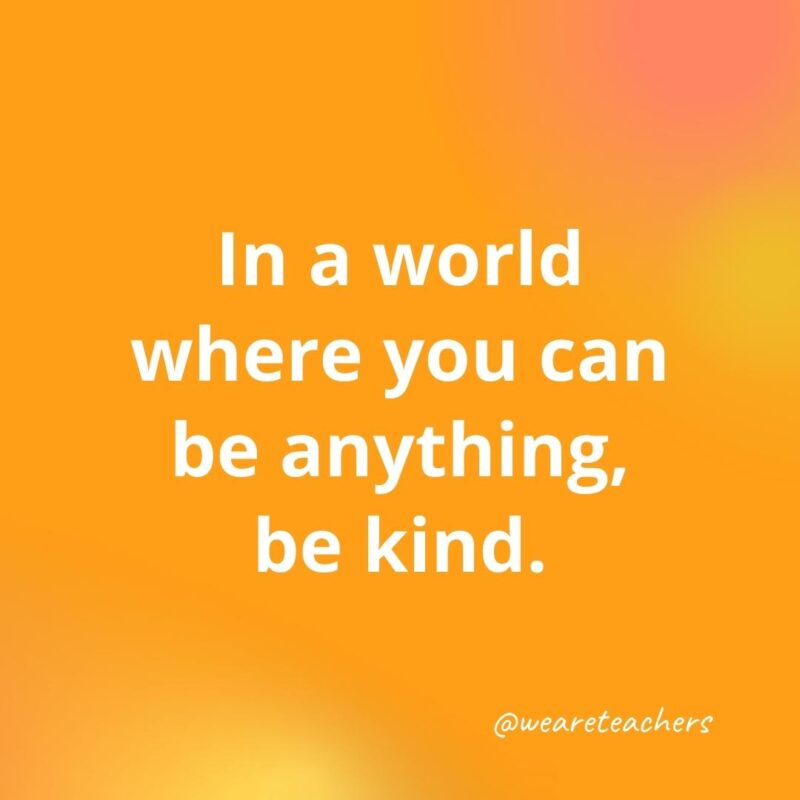
35. Teaching is the greatest act of optimism. – Colleen Wilcox
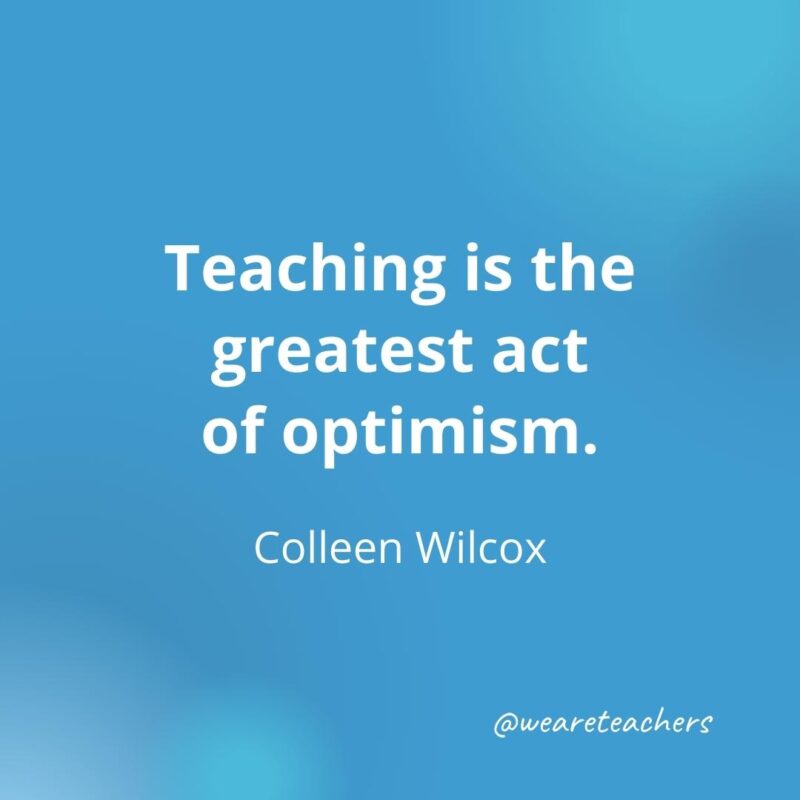
36. It starts on the inside.
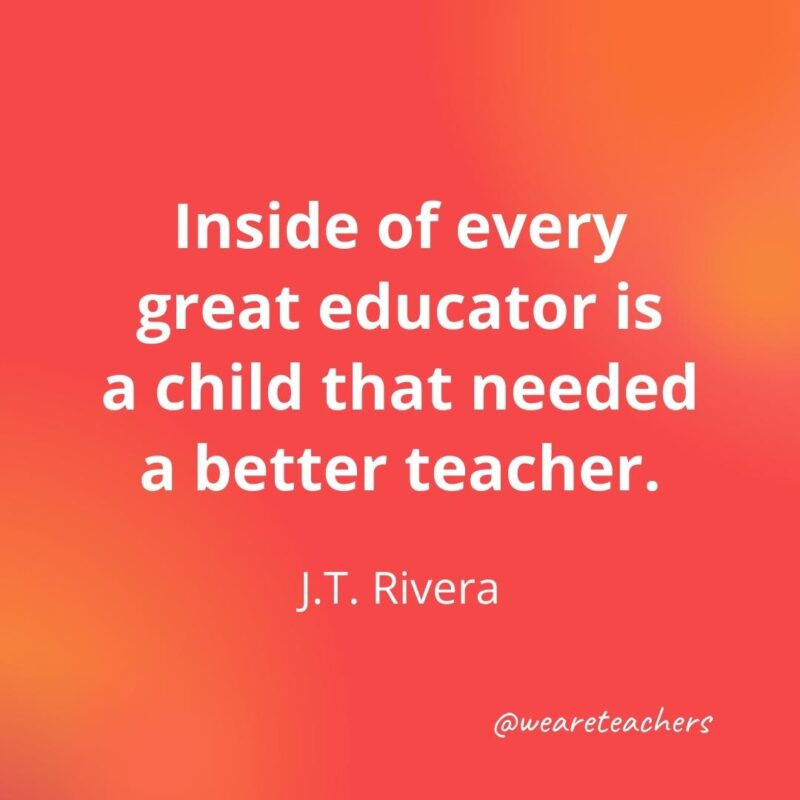
37. The world needs all kinds of minds. – Temple Grandin
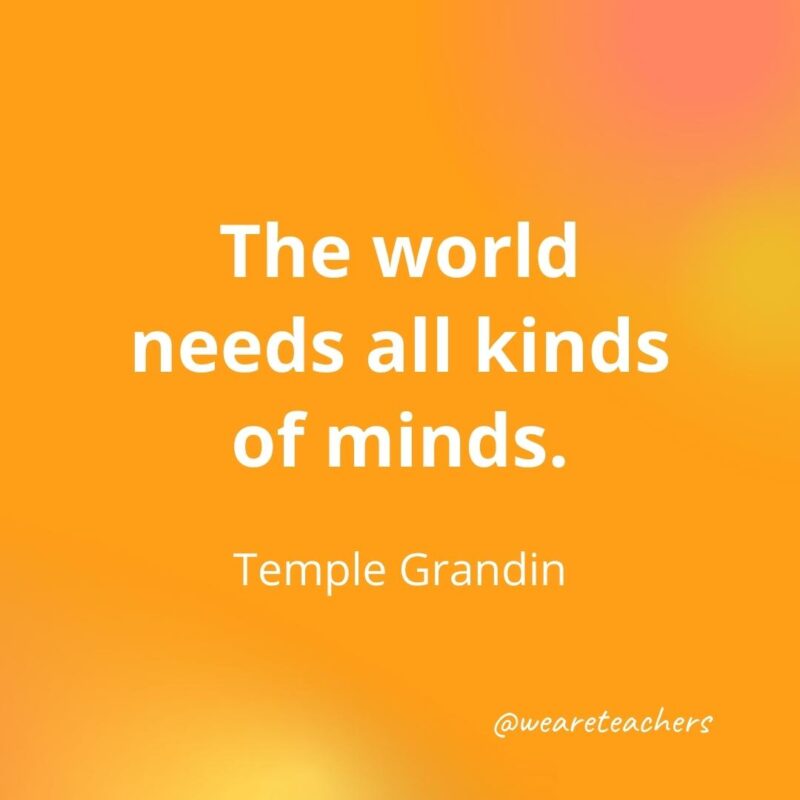
38. Do what you love.
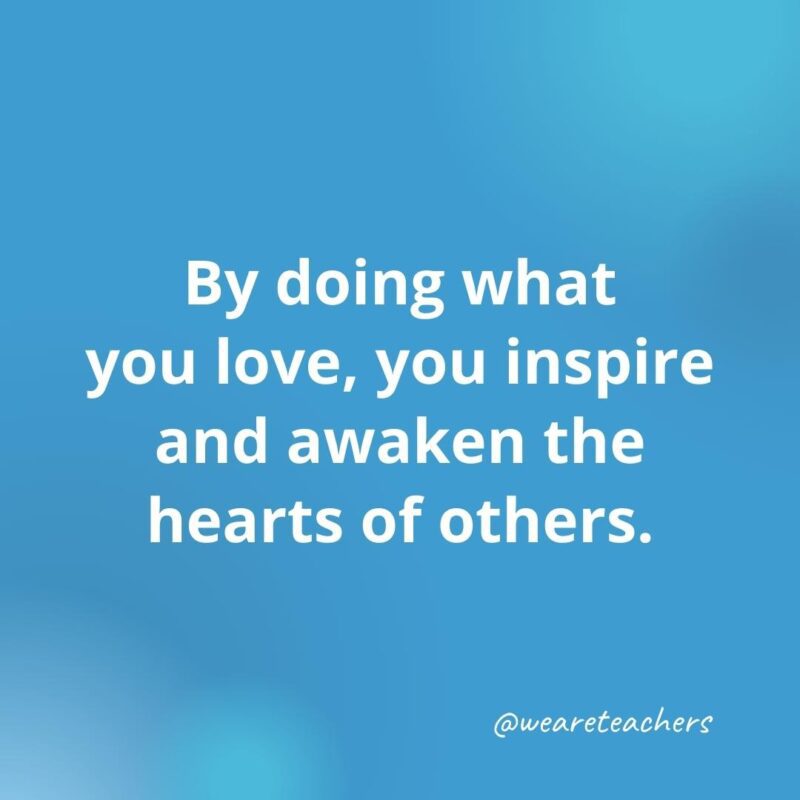
39. The world is changed by your example. – Paulo Coelho
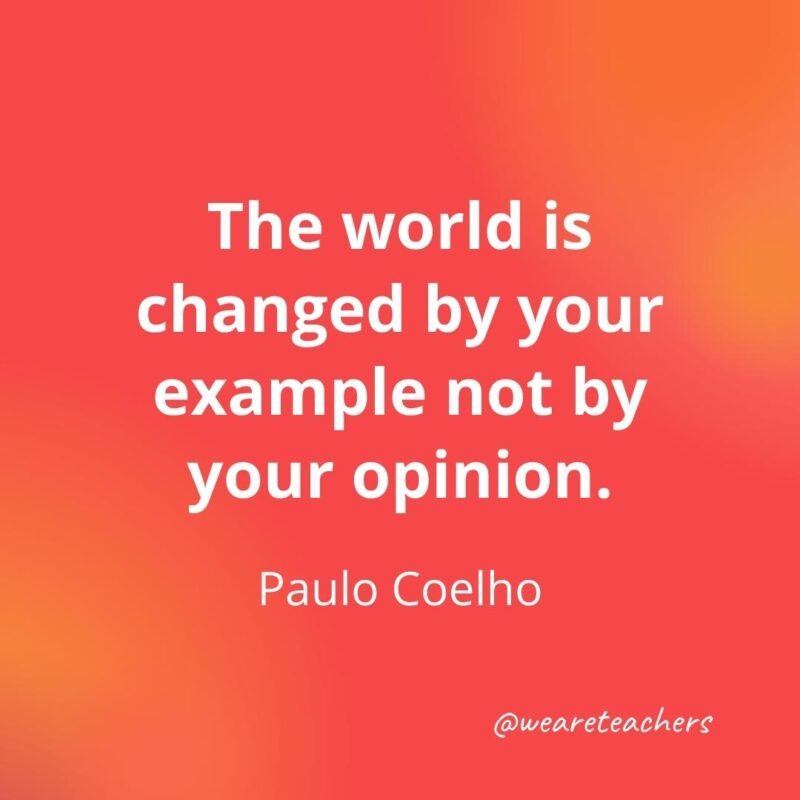
40. Plant some beautiful seeds.
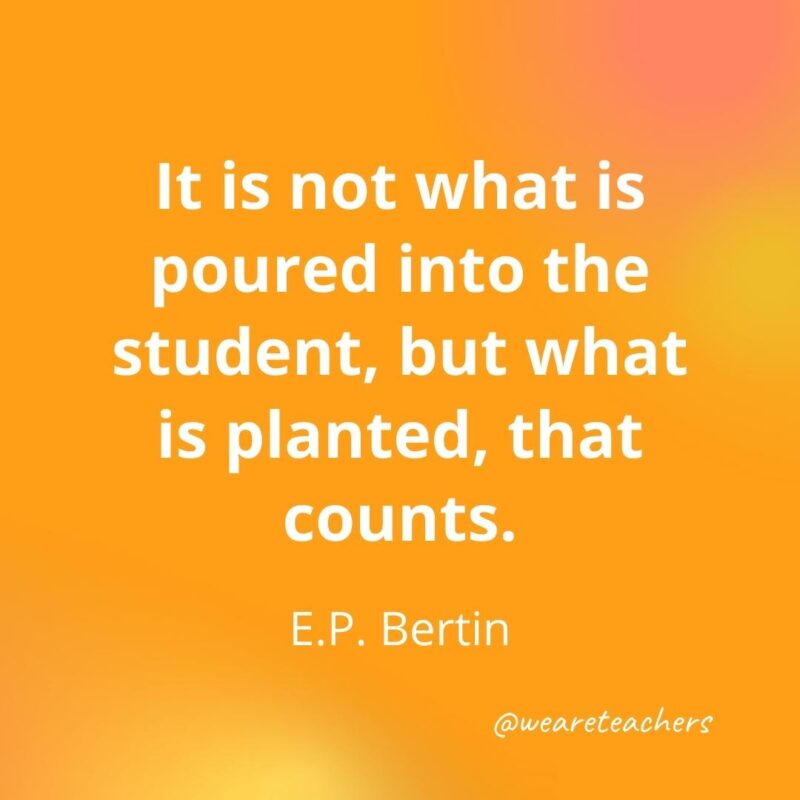
41. To your students, you are a hero.
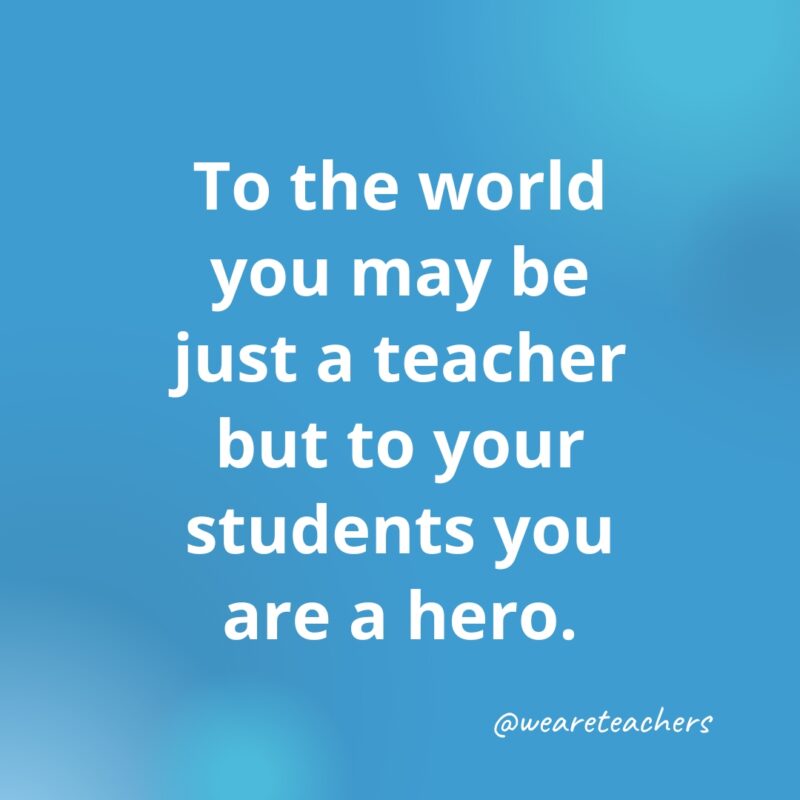
42. The best teachers are those who show you where to look.
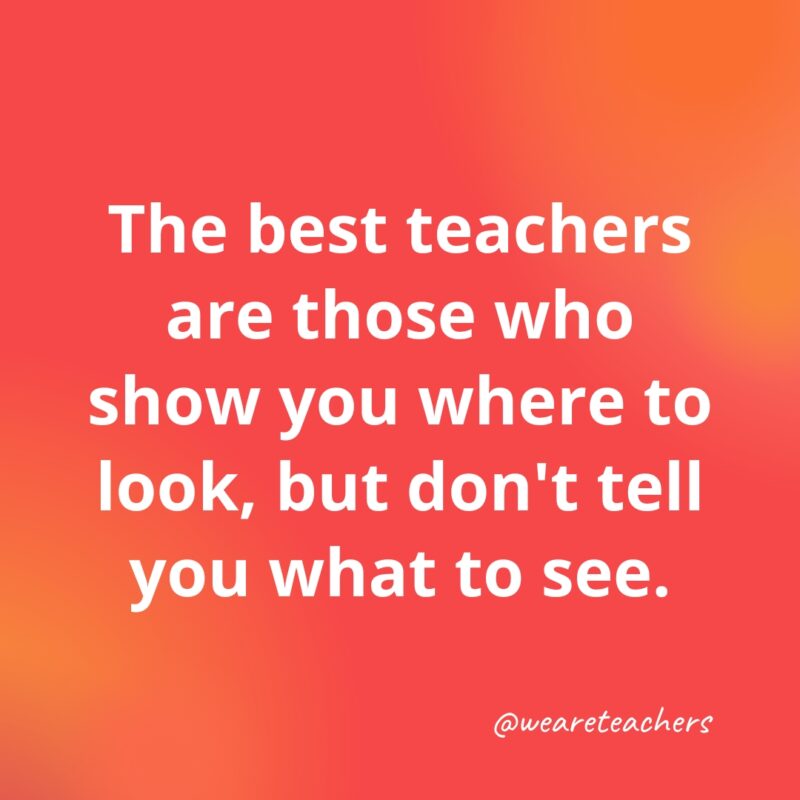
43. I’m just a teacher standing in front of my class …
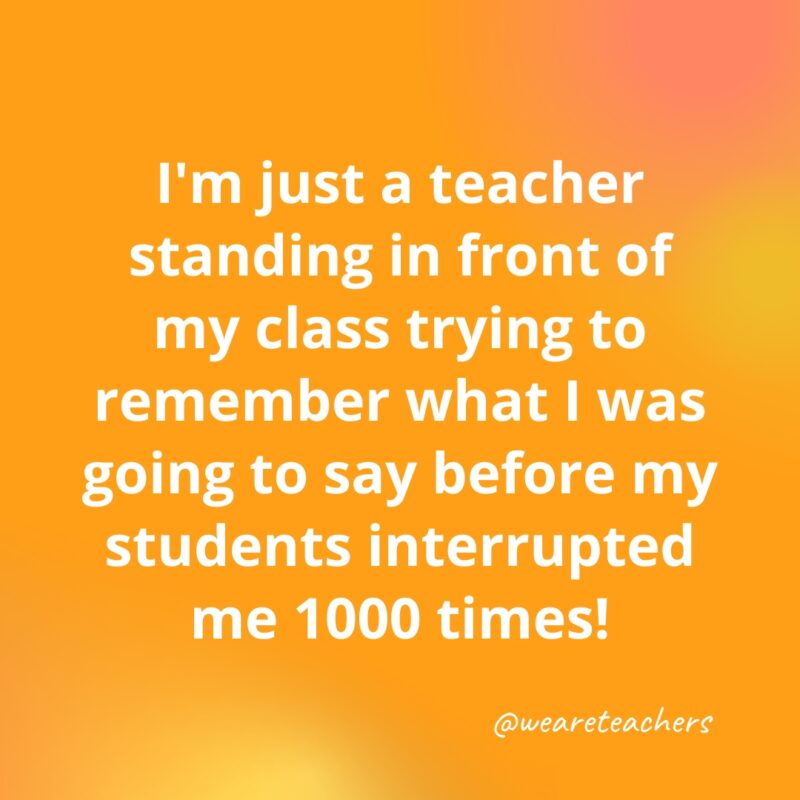
44. You are already a good teacher.
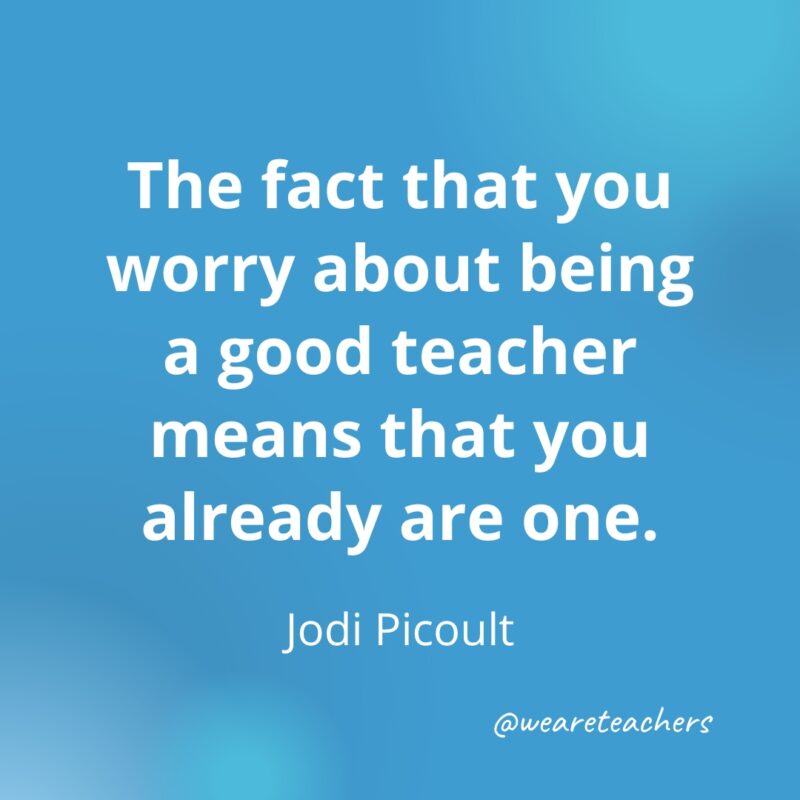
45. If we teach today’s students as we taught yesterday’s …
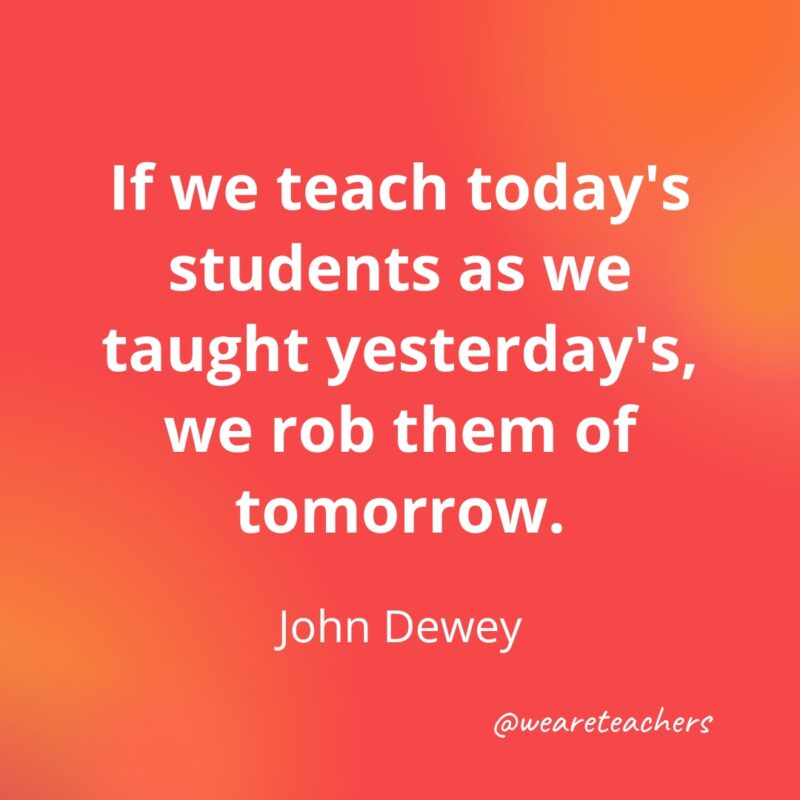
46. The duties of a teacher are neither few nor small, but they elevate the mind and give energy to the character. – Dorothea Dix
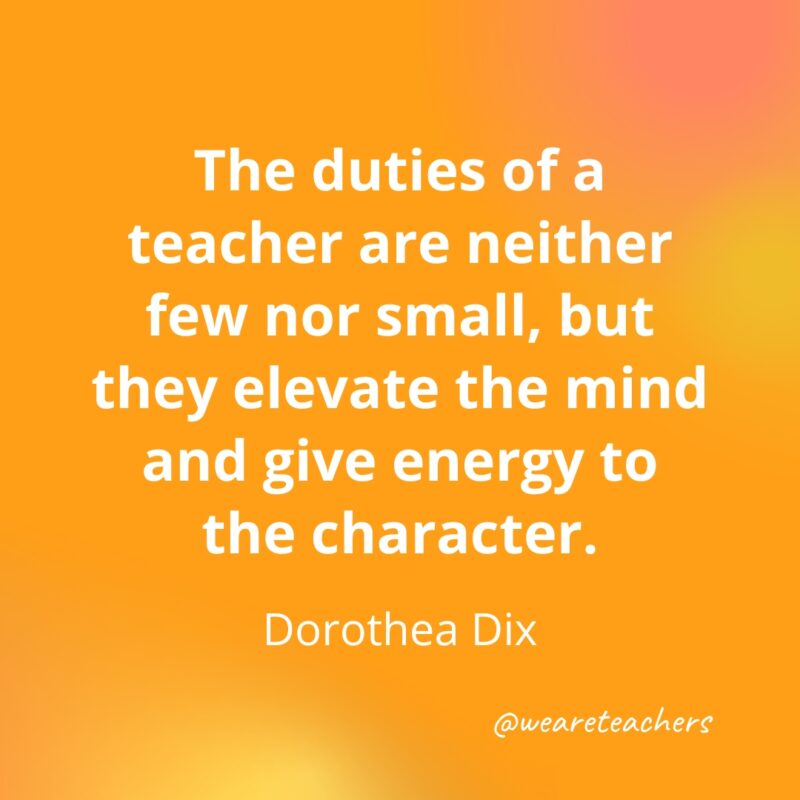
47. Teachers appreciate being appreciated, for teacher appreciation is their highest award. – William Prince
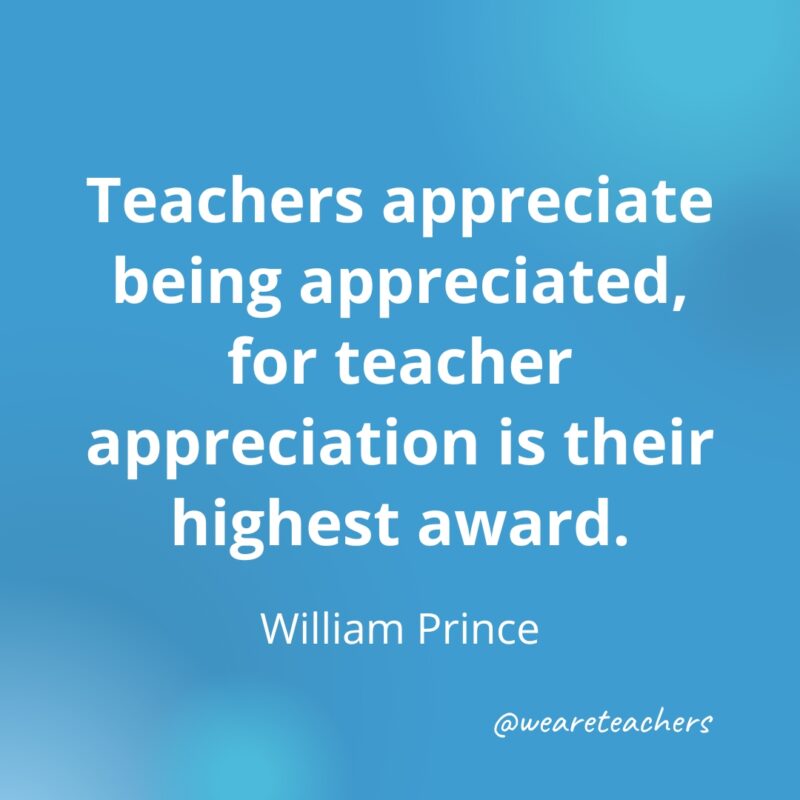
48. In order to be an effective teacher, you have to love your students as human beings and you have to love teaching. – Maribeth Sublette
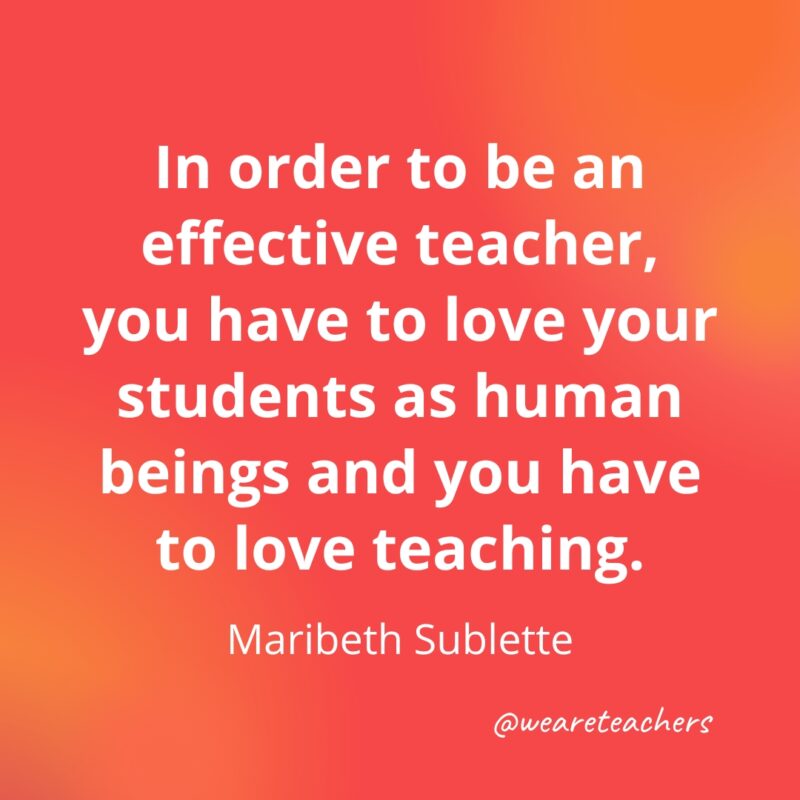
49. Not all superheros wear capes—some have teaching degrees. – Author Unknown
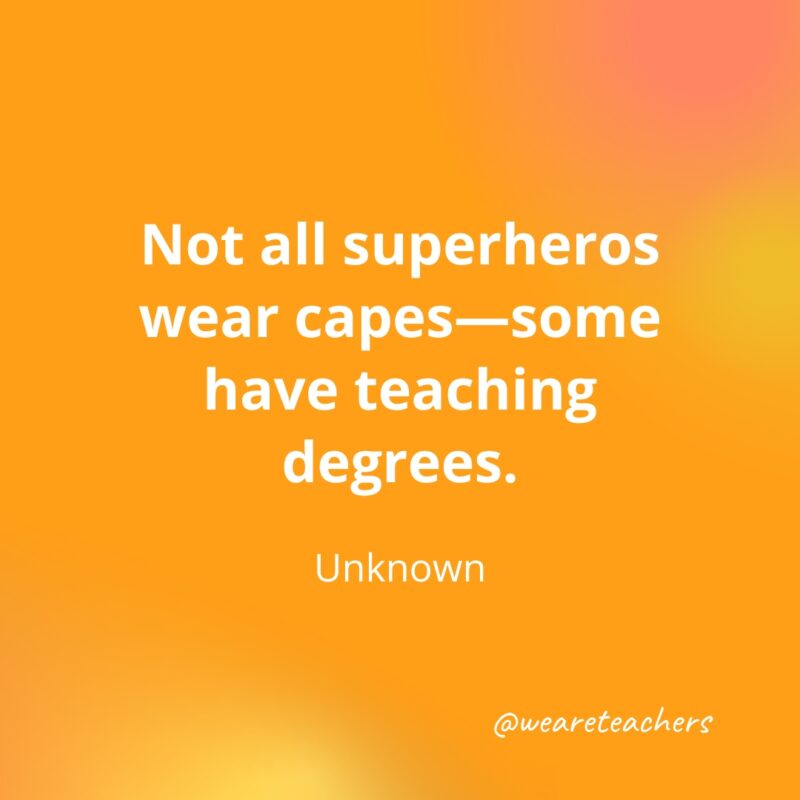
50. Teachers have three loves: love of learning, love of learners, and the love of bringing the first two loves together. – Scott Hayden
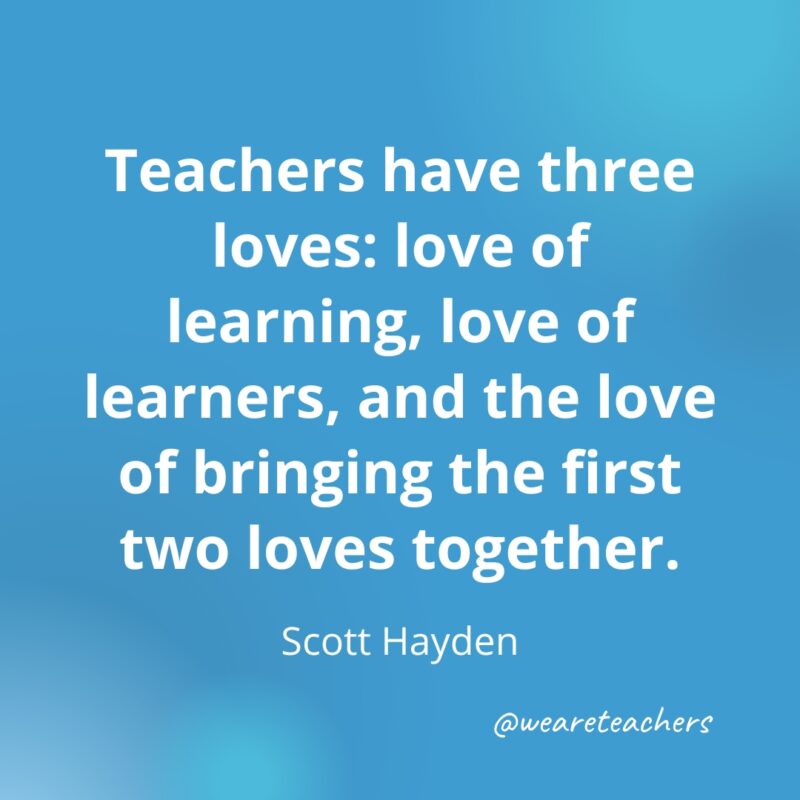
50. The art of teaching is the art of assisting discovery. – Mark Van Doren
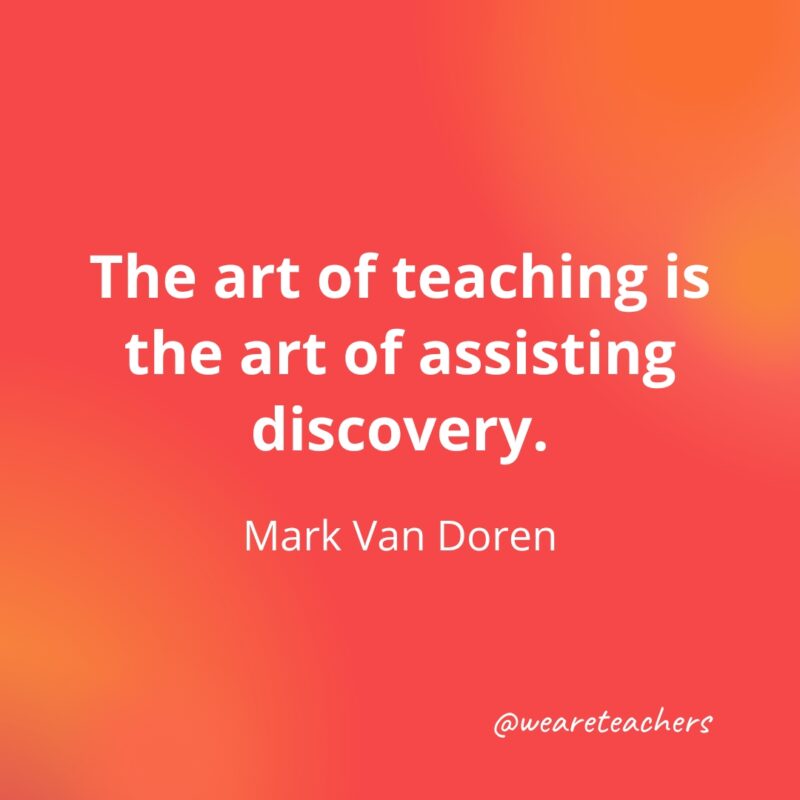
51. A teacher’s job is to take a bunch of live wires and see that they are well-grounded. – Darwin D. Martin
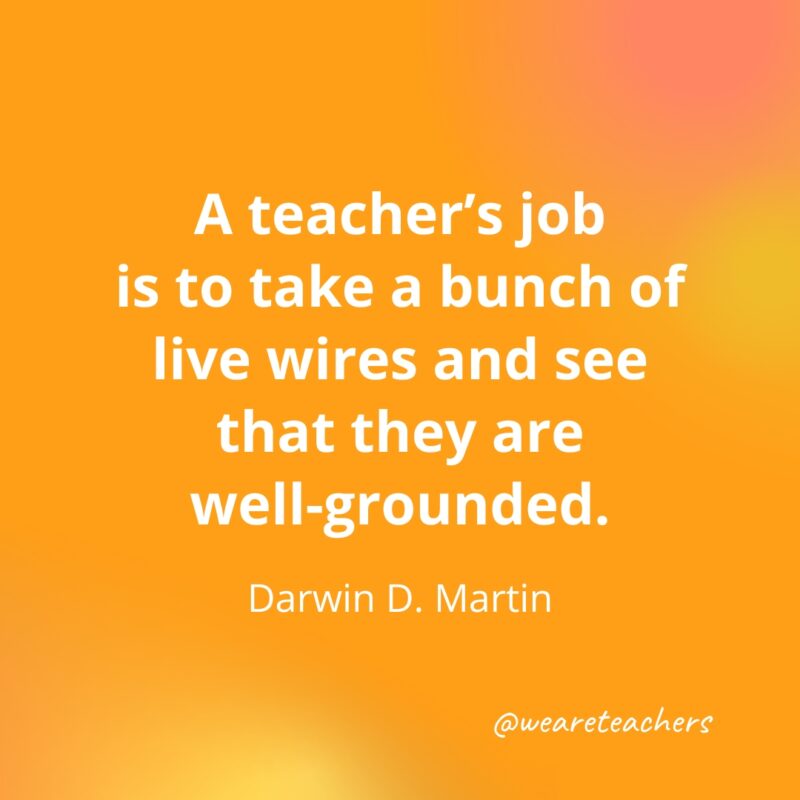
52. I like a teacher who gives you something to take home to think about besides homework. – Lily Tomlin
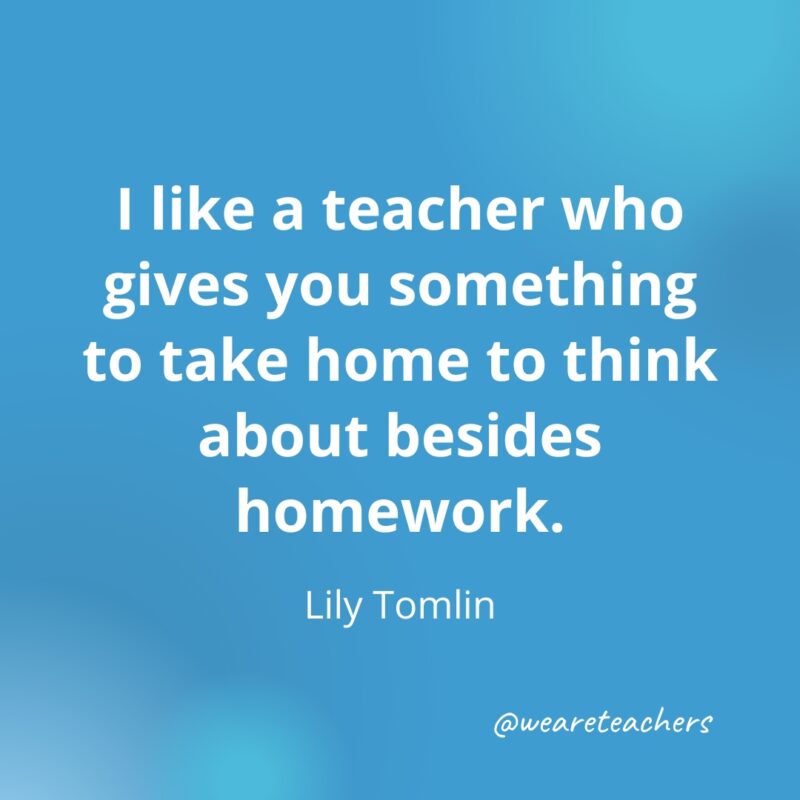
53. Nine-tenths of education is encouragement. – Anatole France
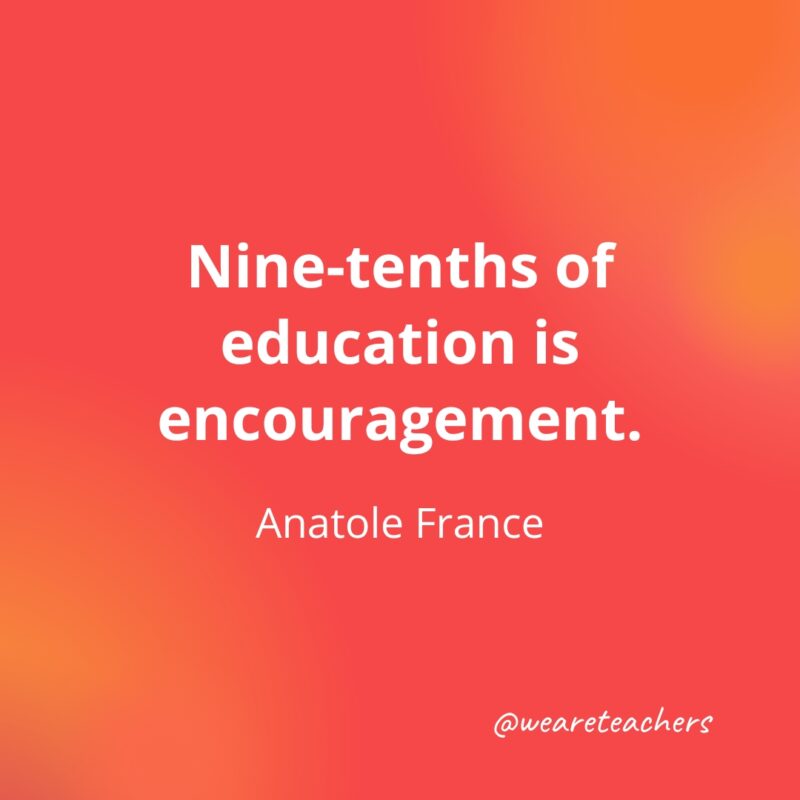
54. A good teacher can inspire hope, ignite the imagination, and instill a love of learning. – Brad Henry
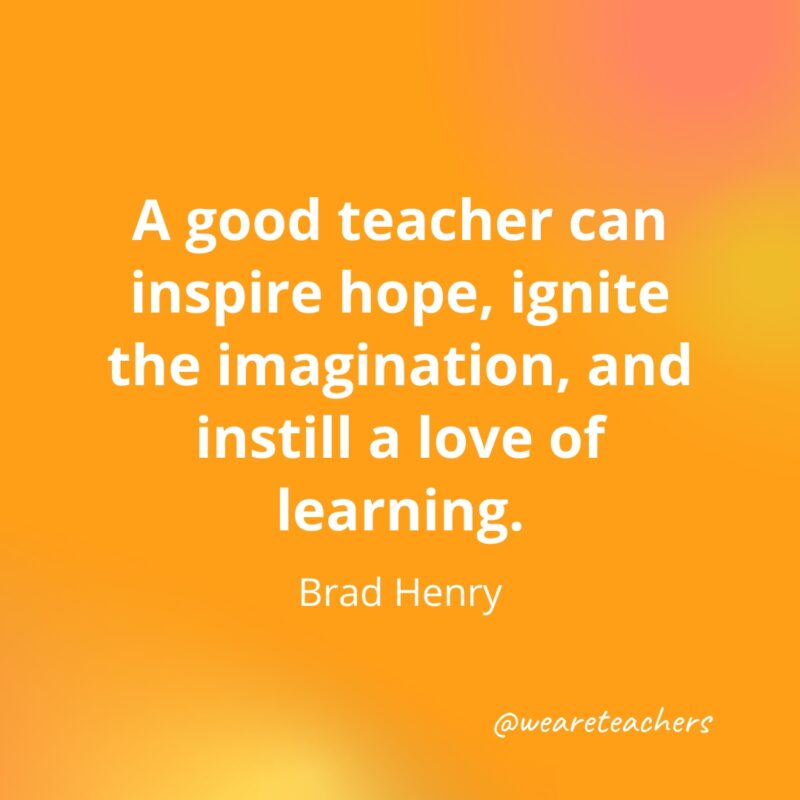
55. A good teacher is like a candle—it consumes itself to light the way for others. – Mustafa Kemal Atatürk
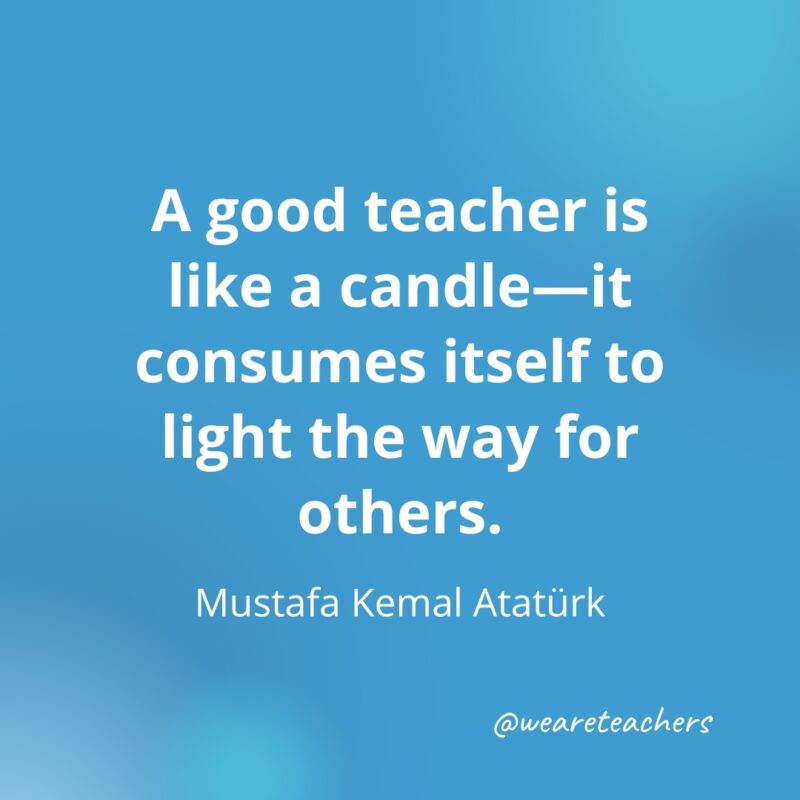
What teacher quotes strengthen and inspire you? Come share in our WeAreTeachers HELPLINE group on Facebook.
And if you like inspirational quotes, you’ll love these Favorite Classroom Quotes.
